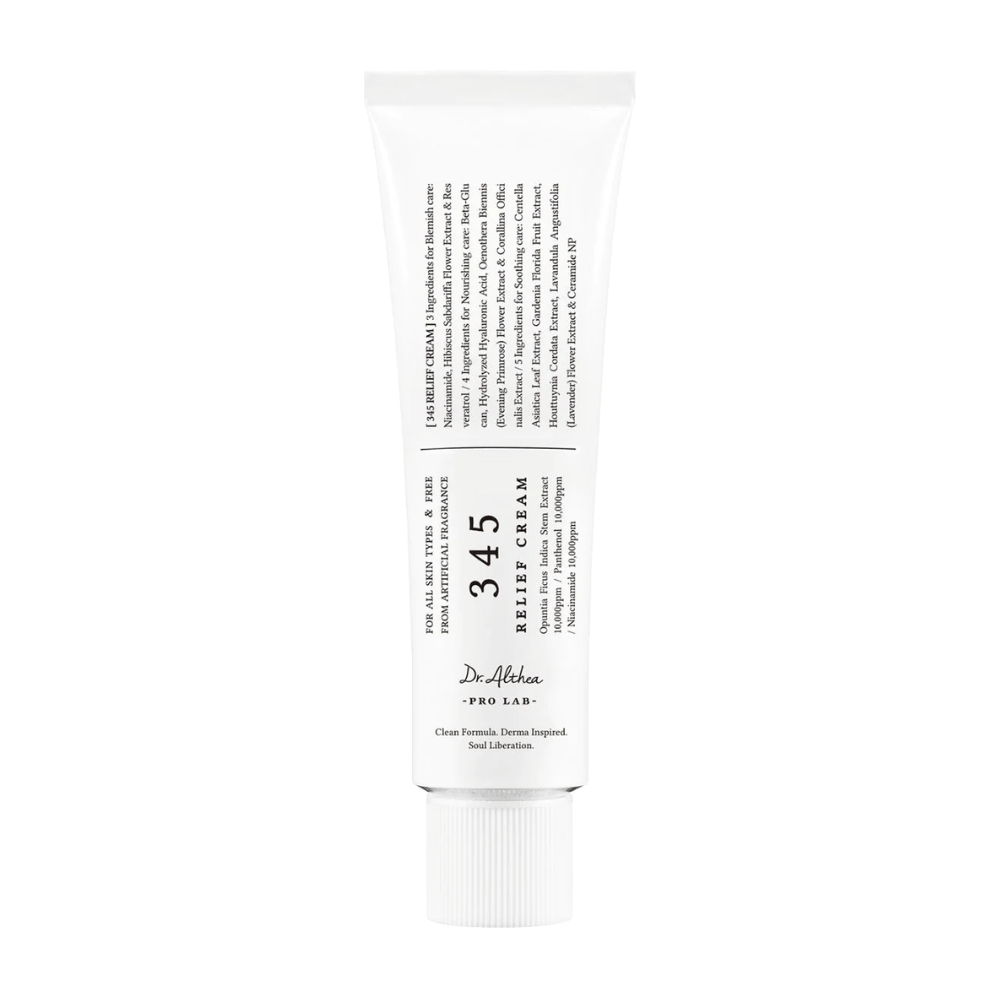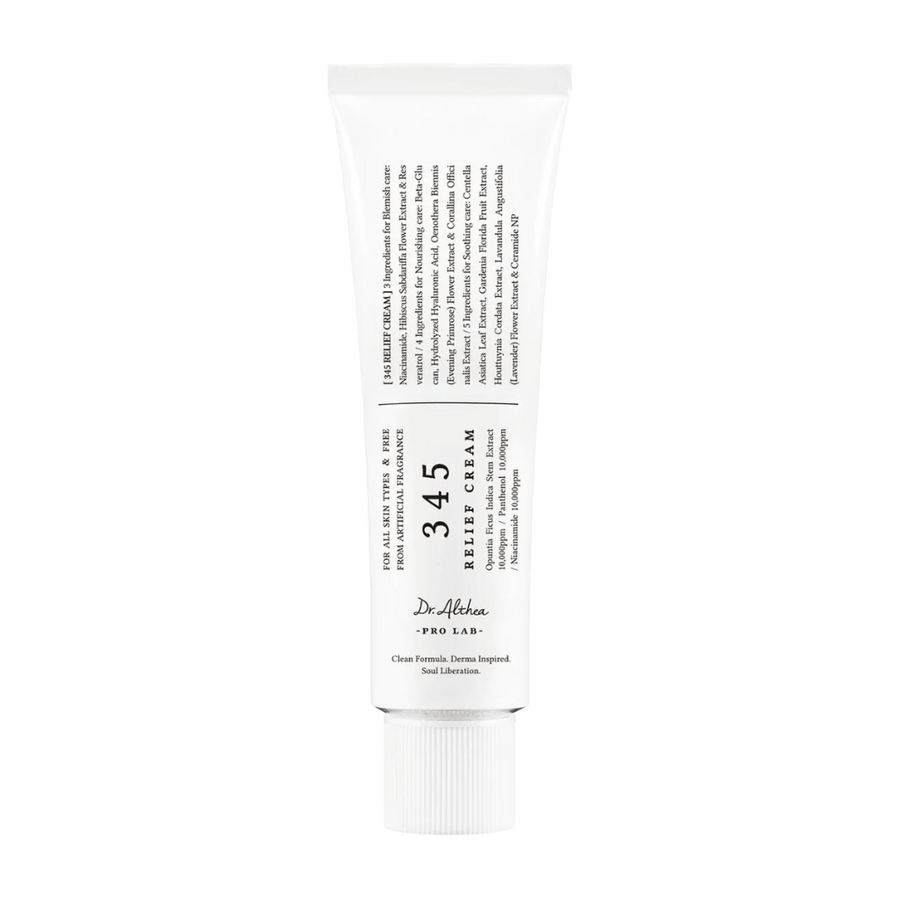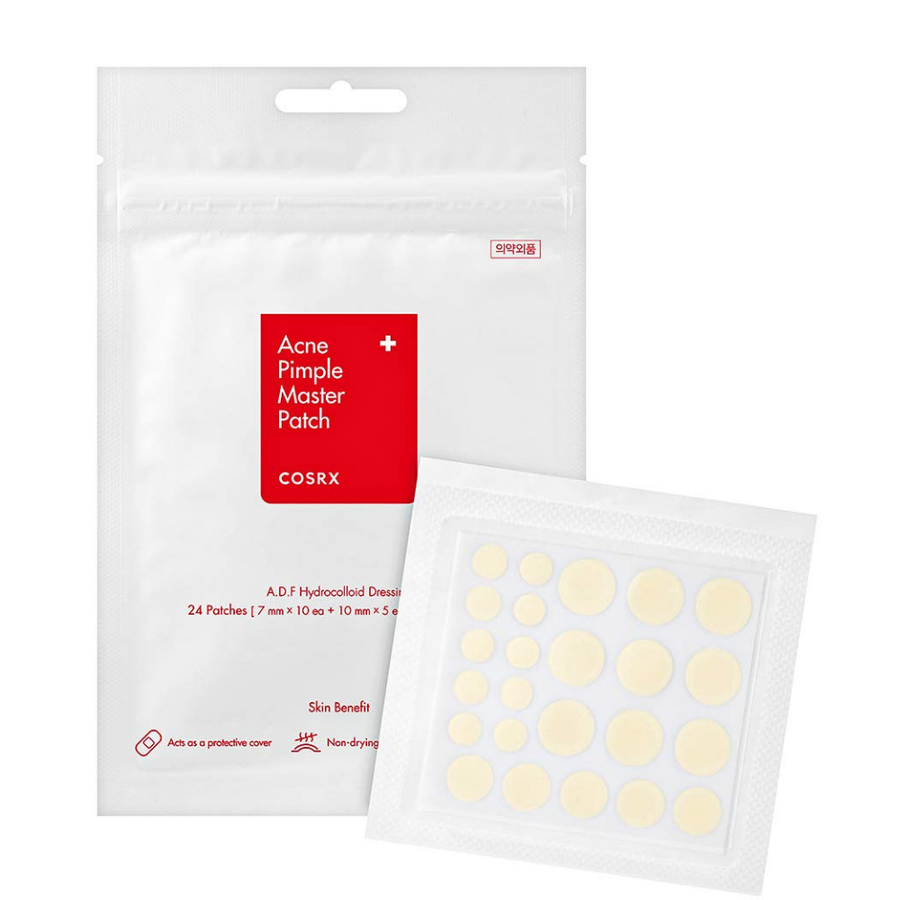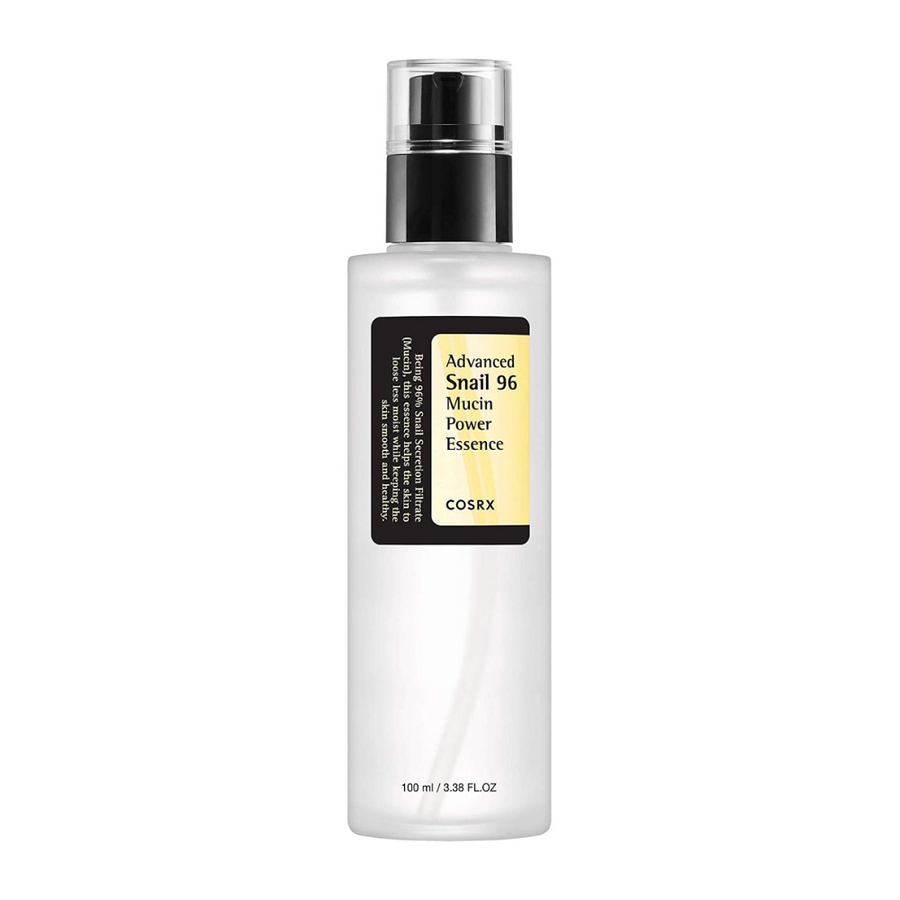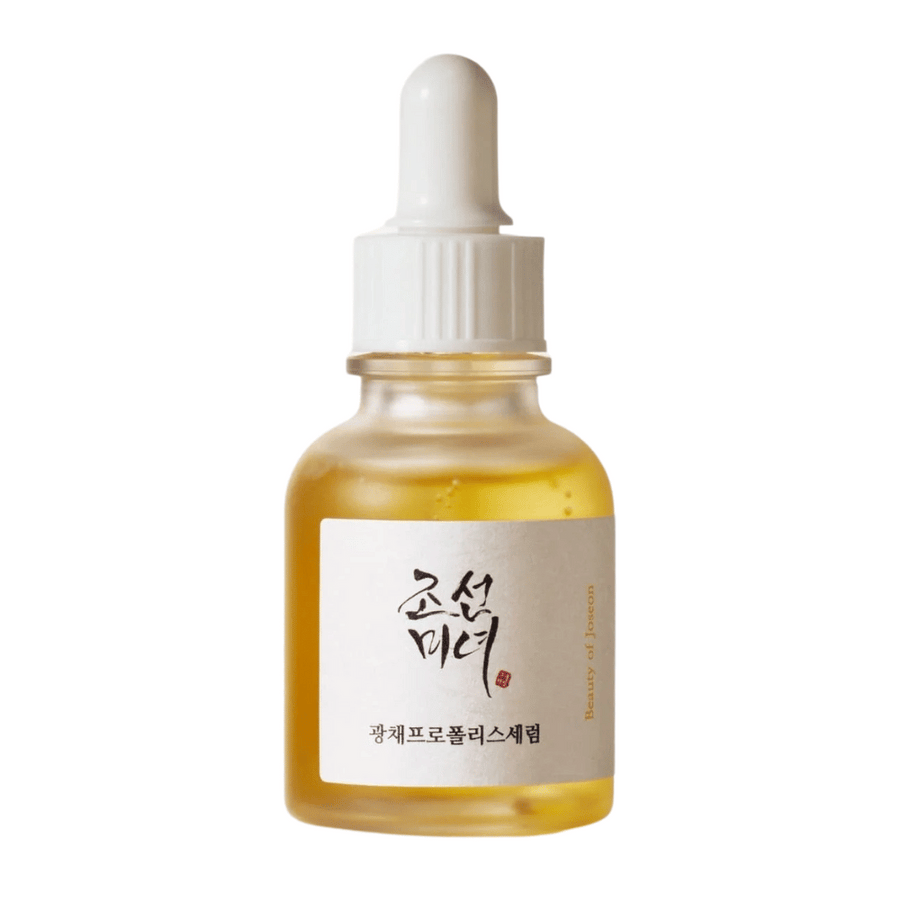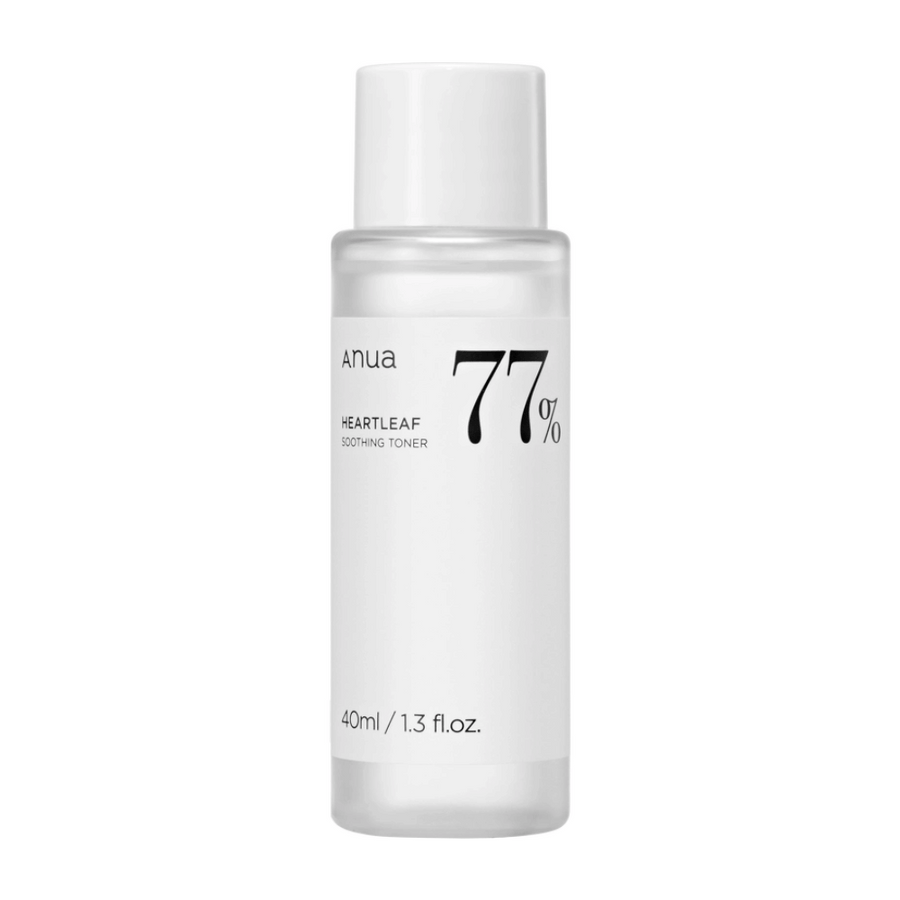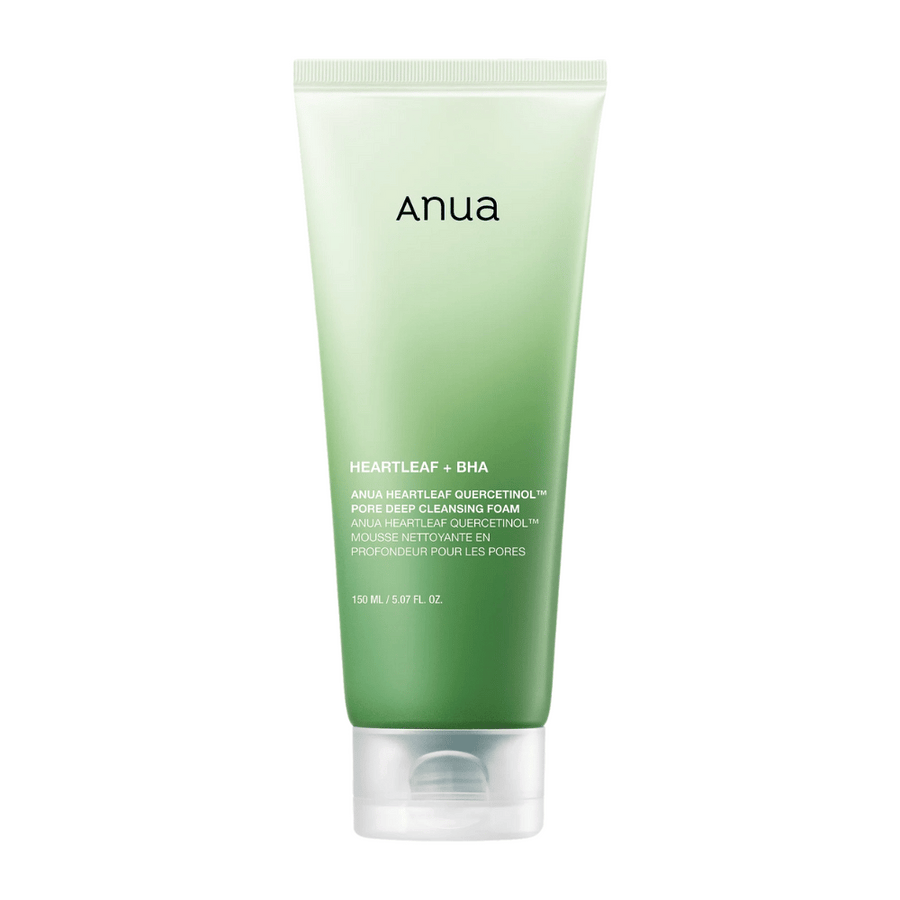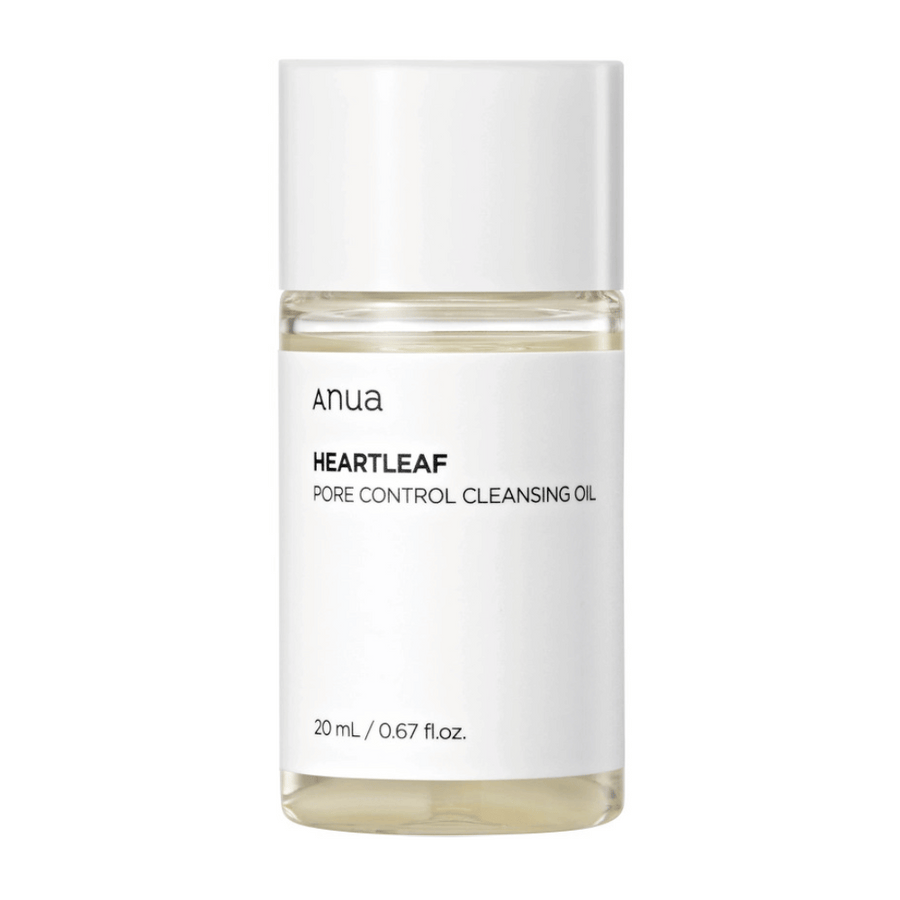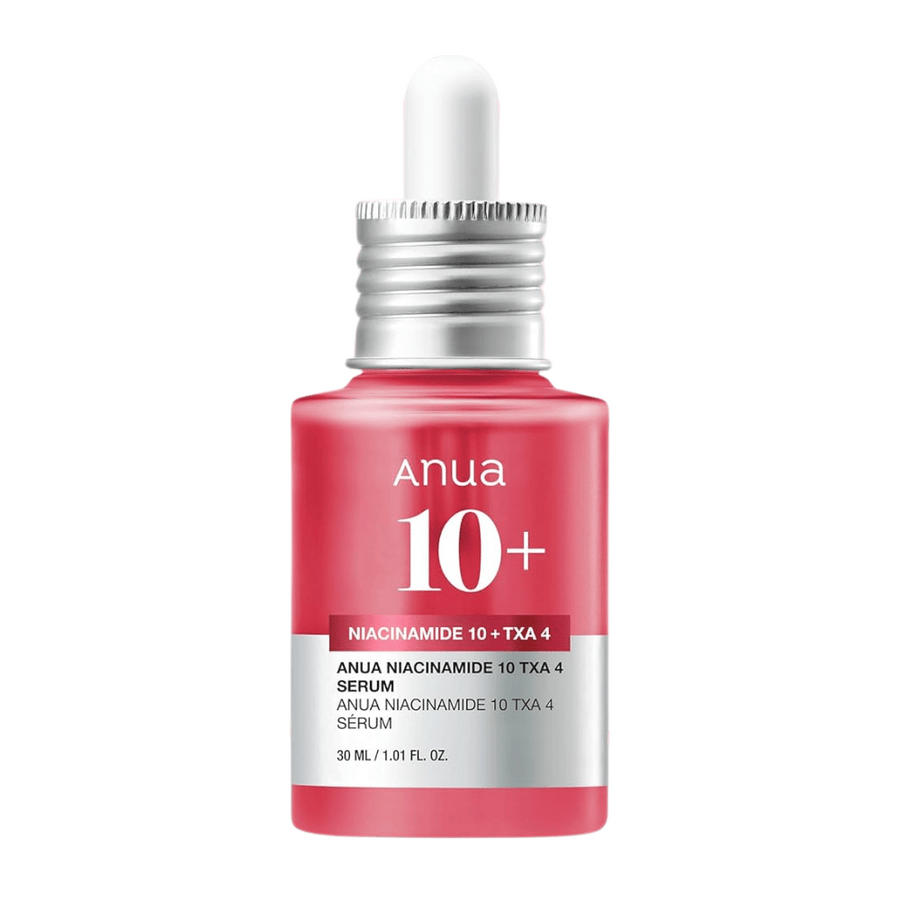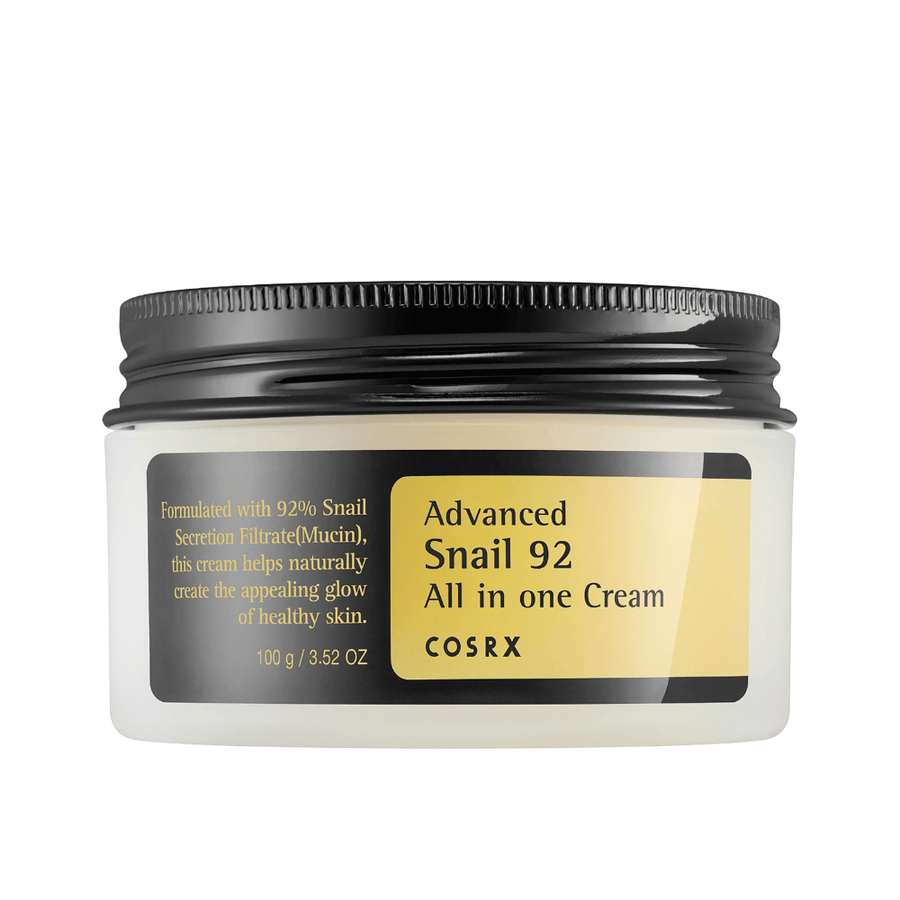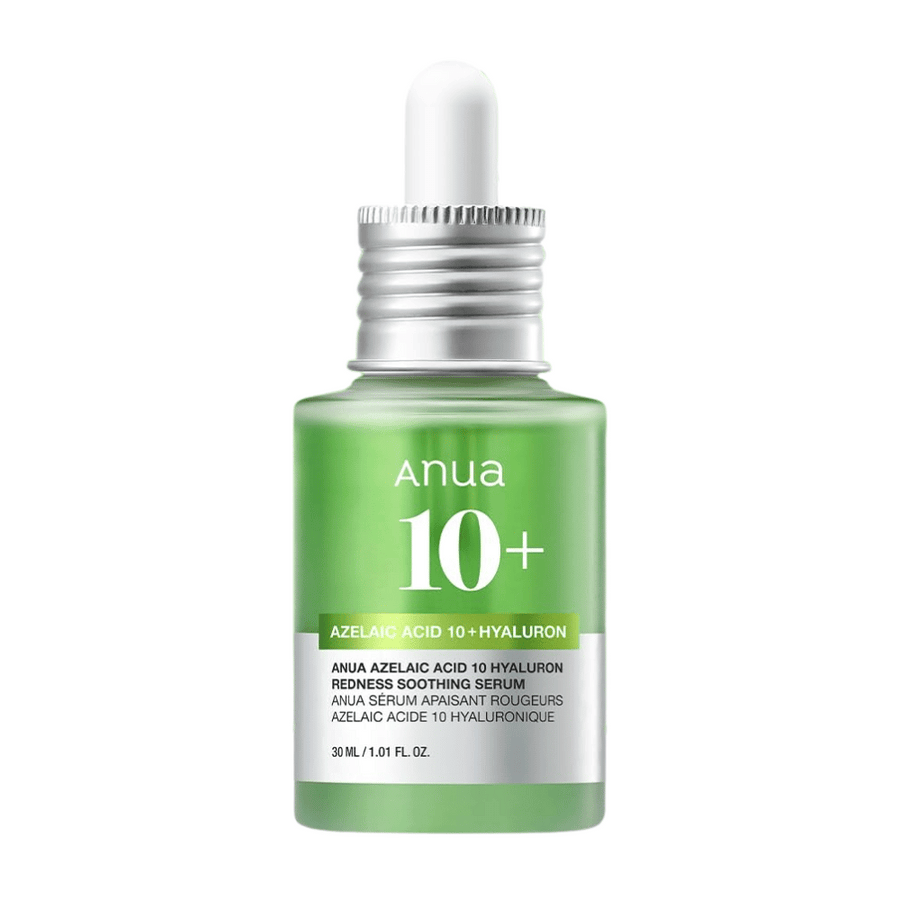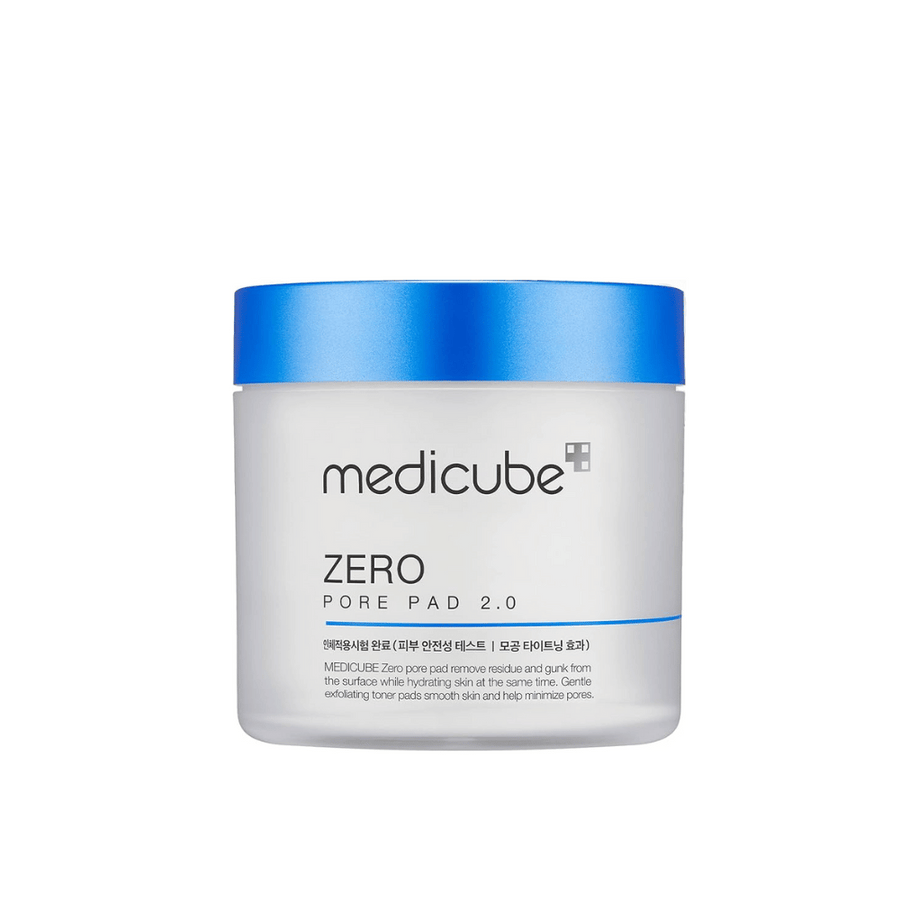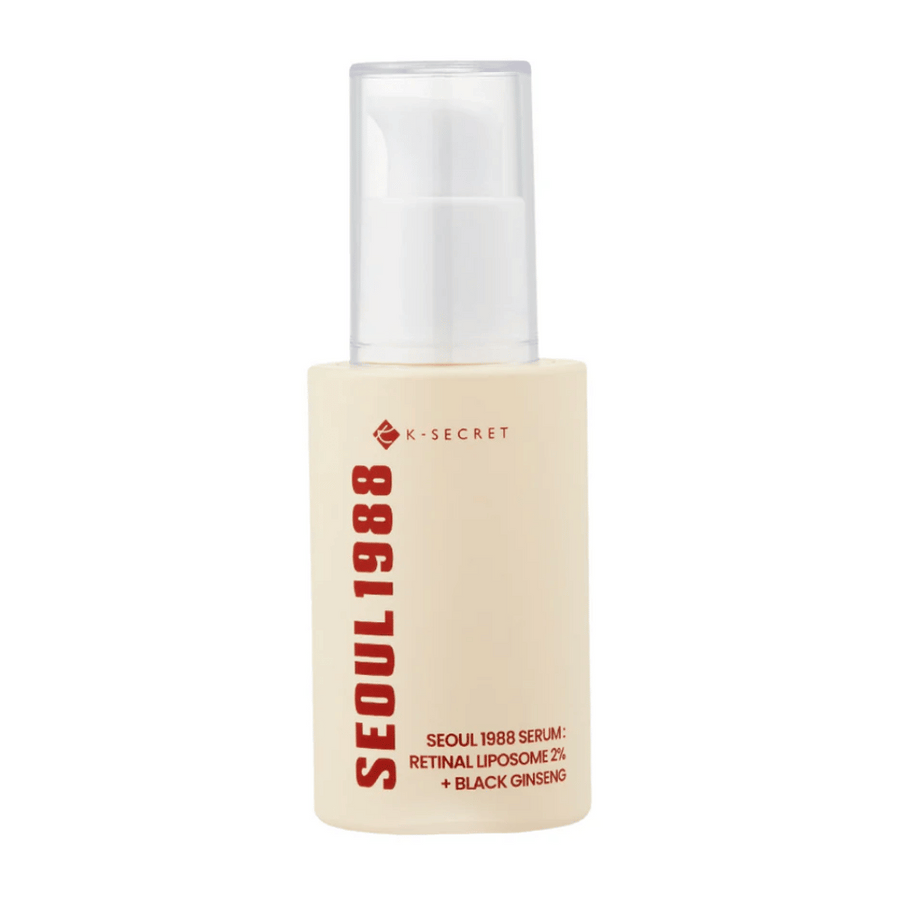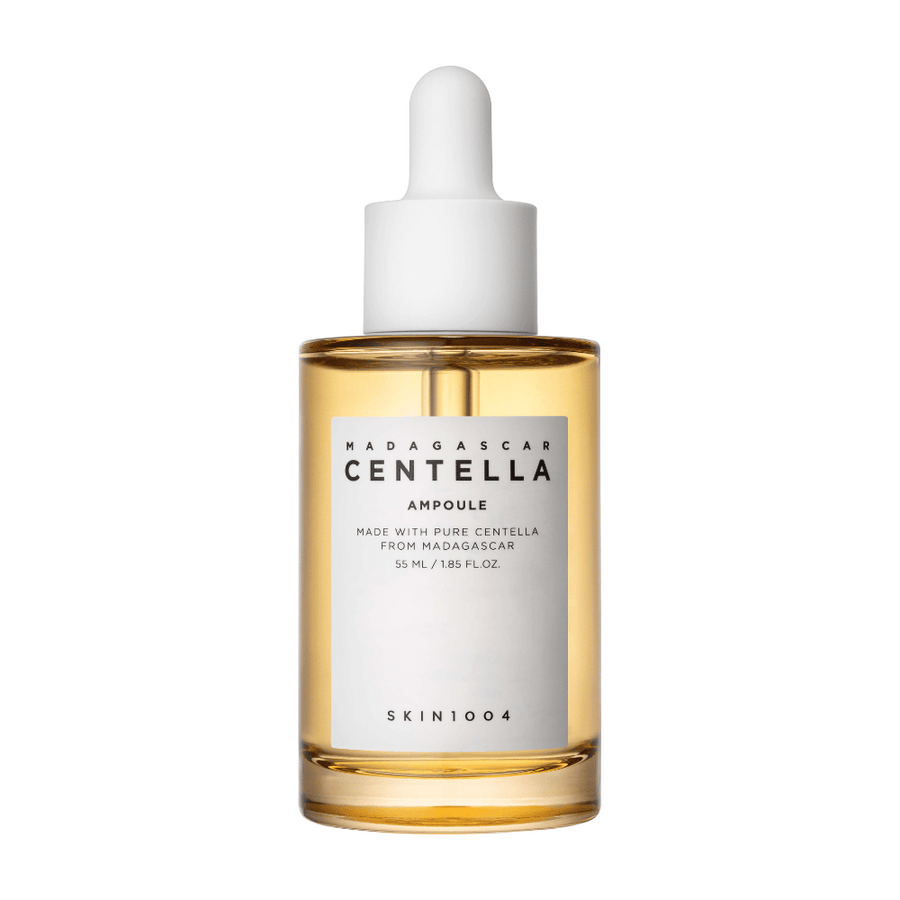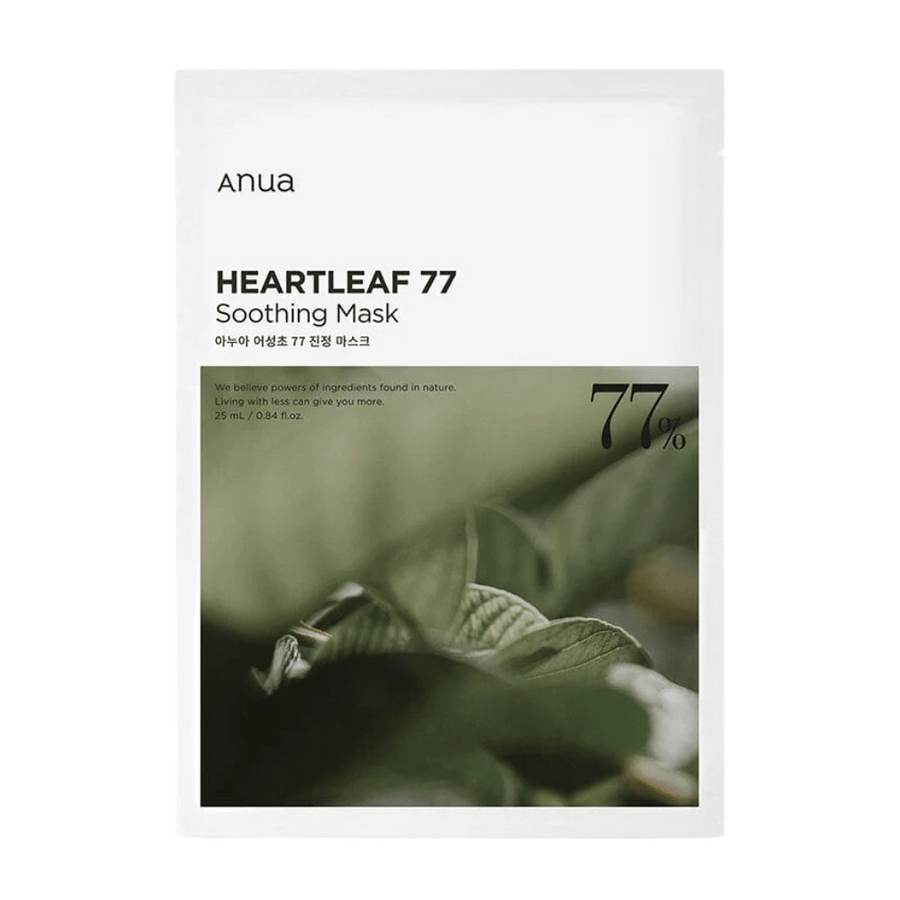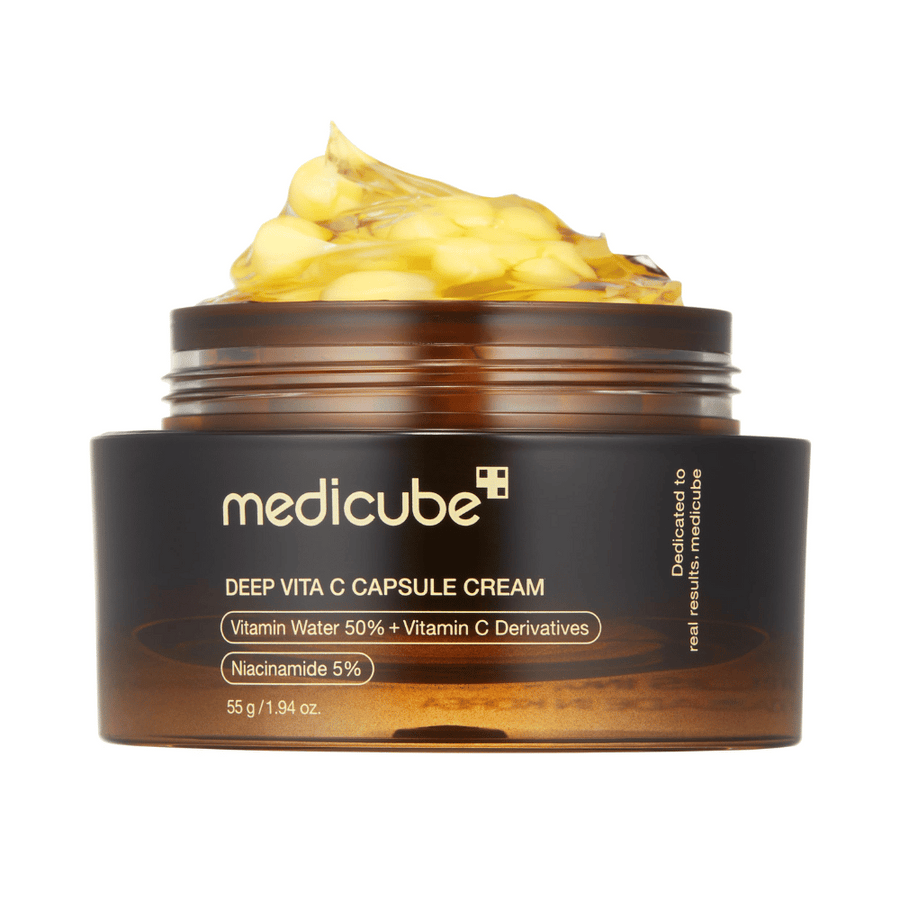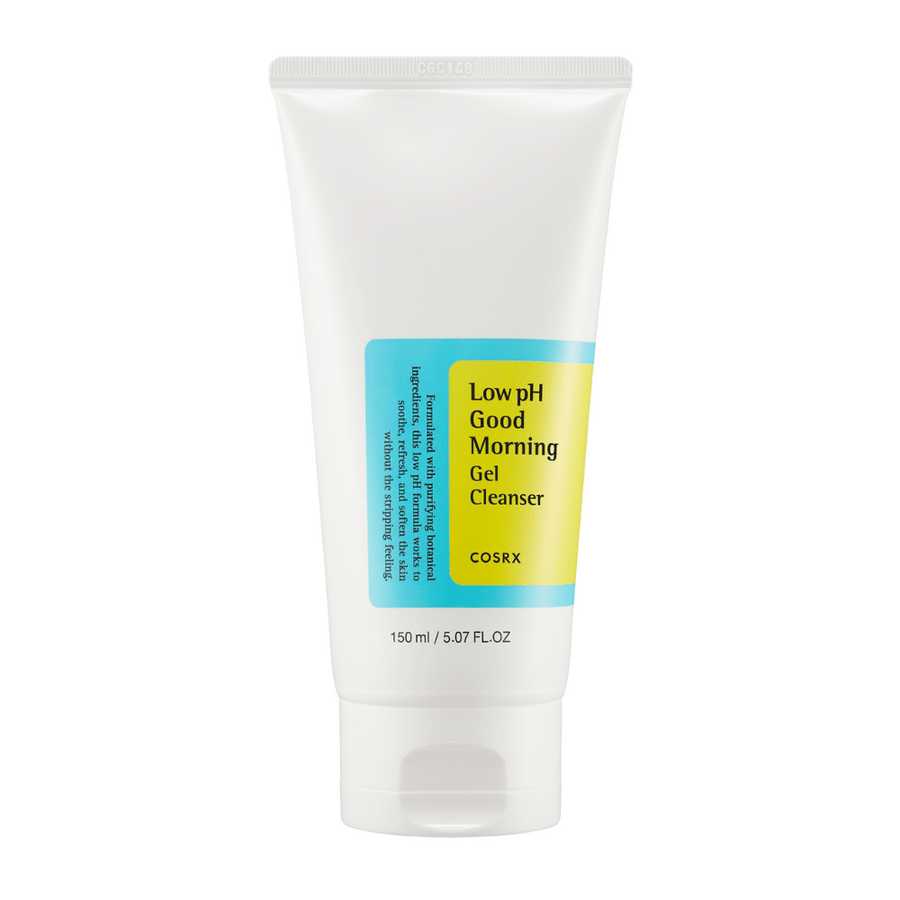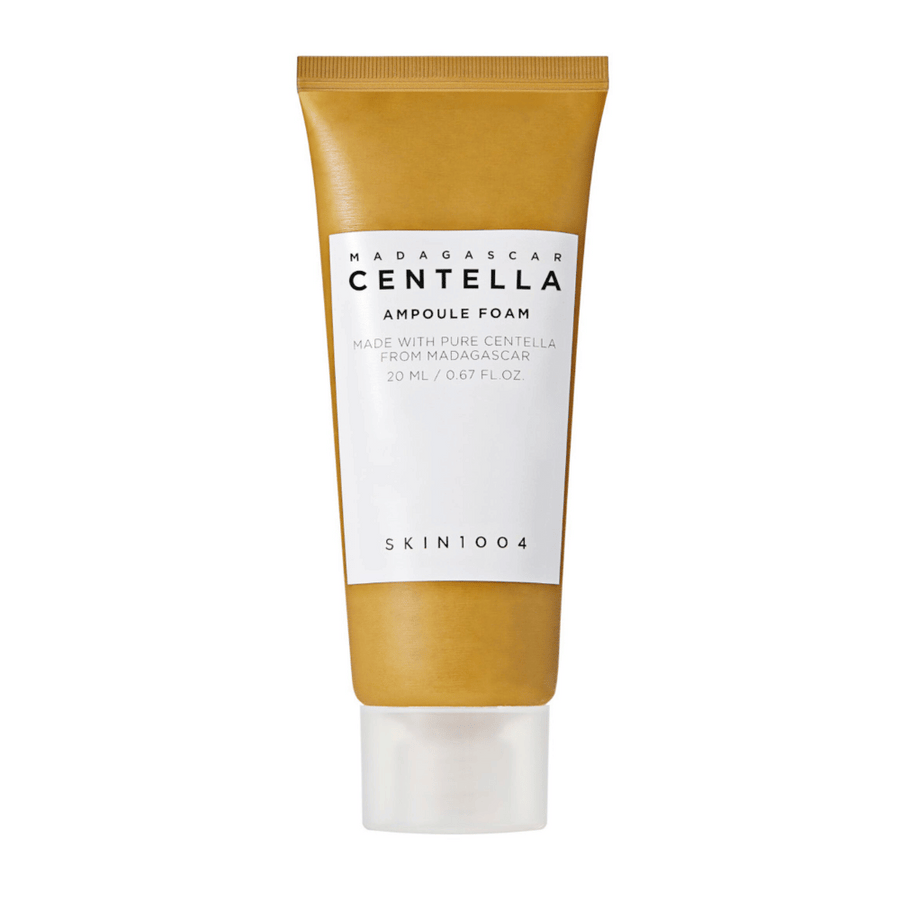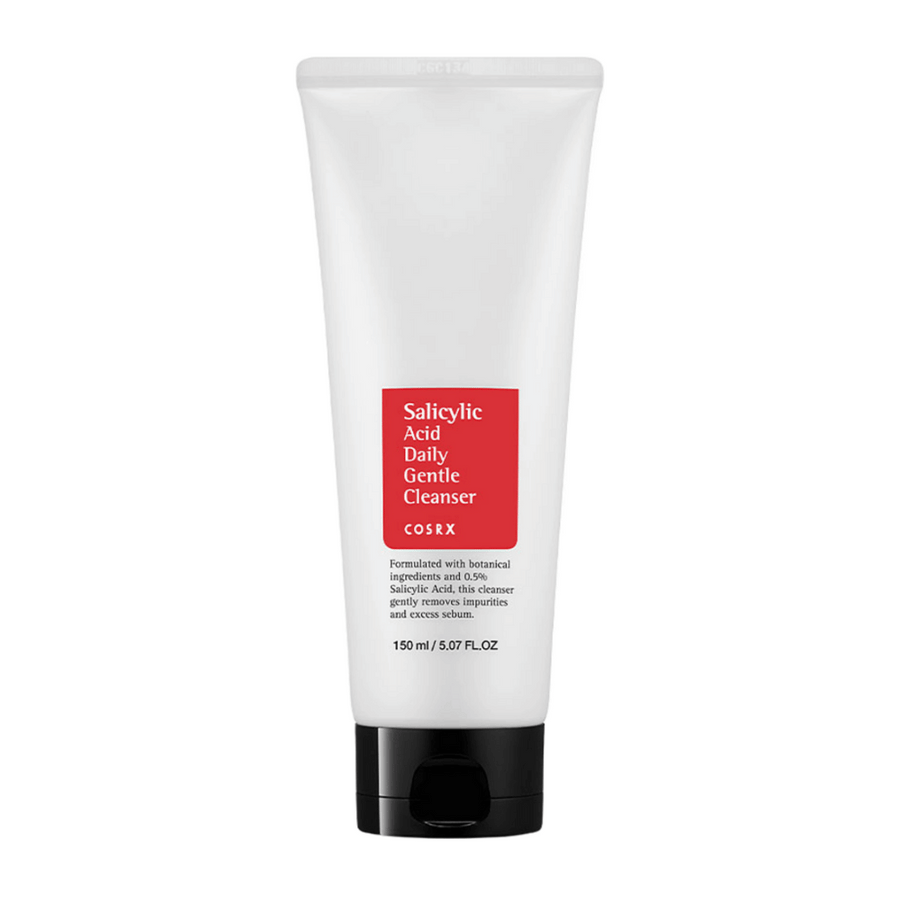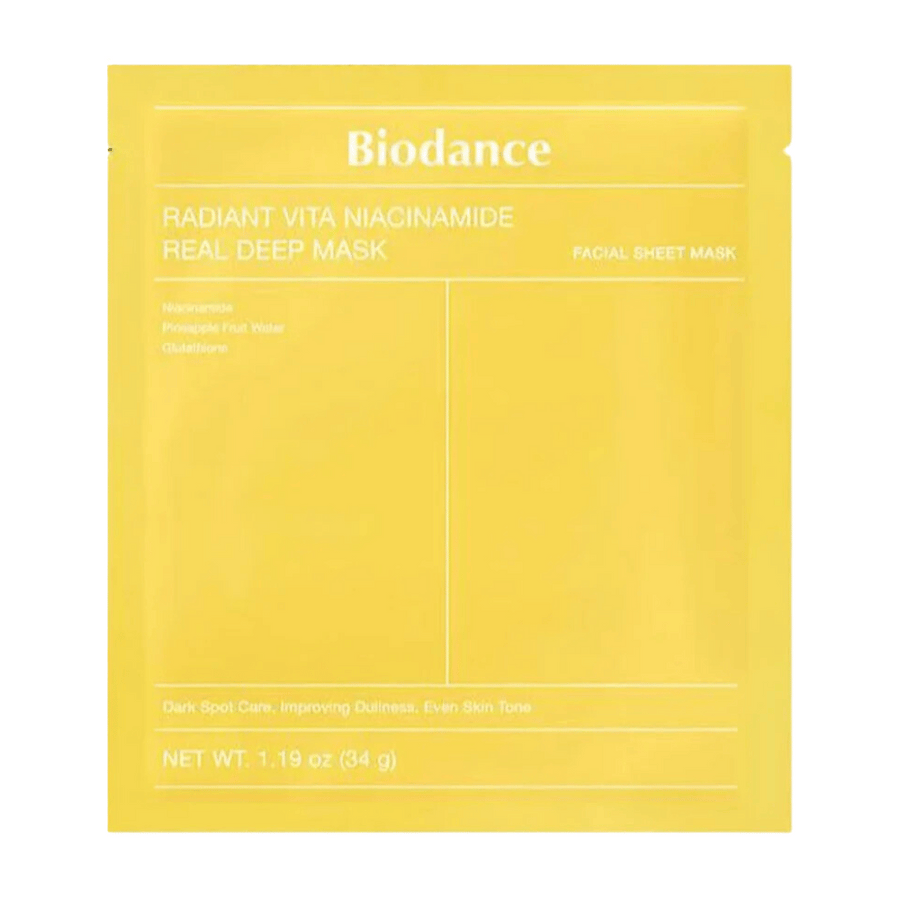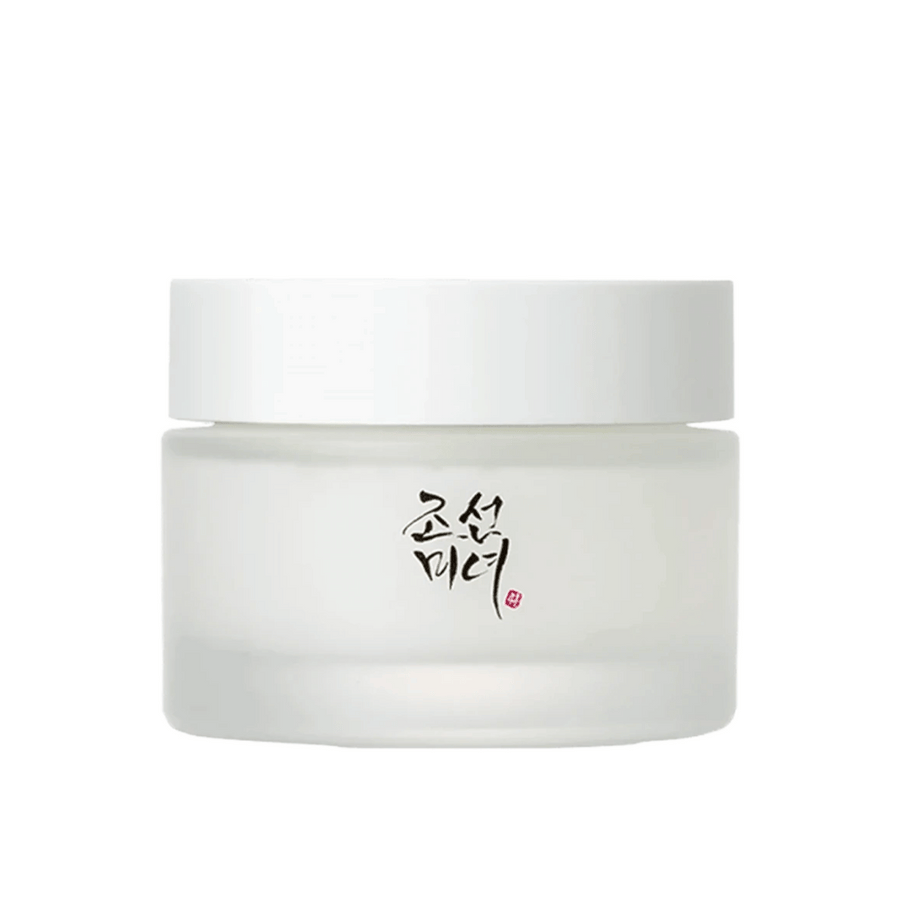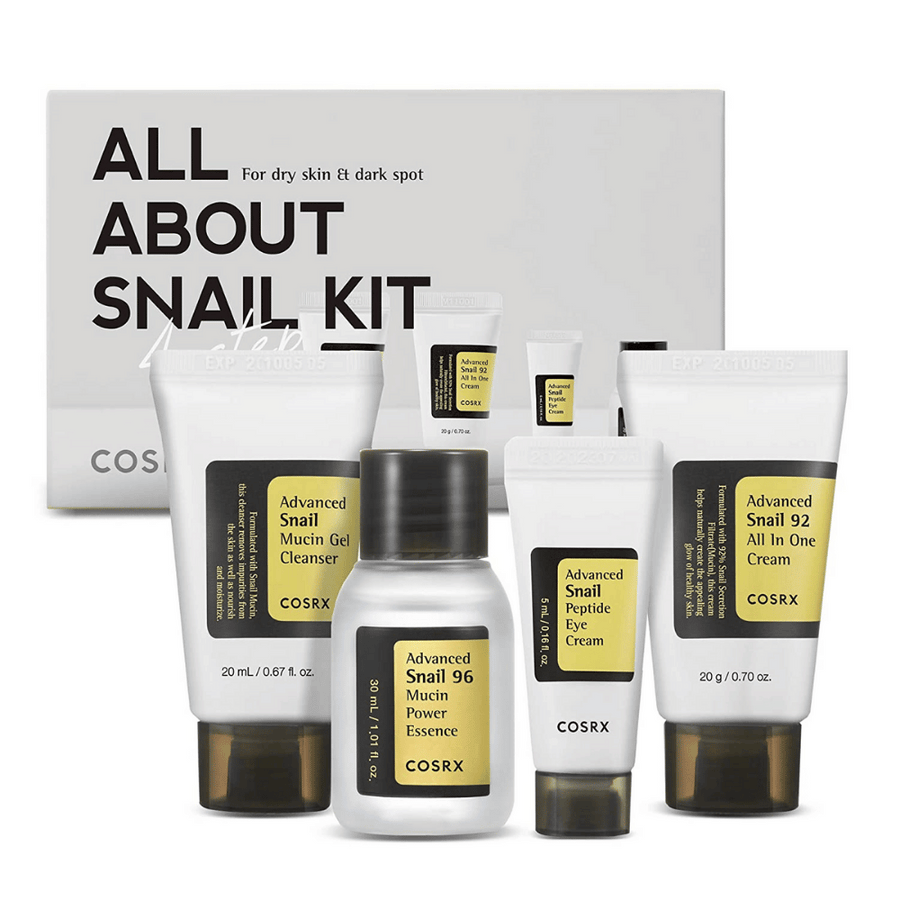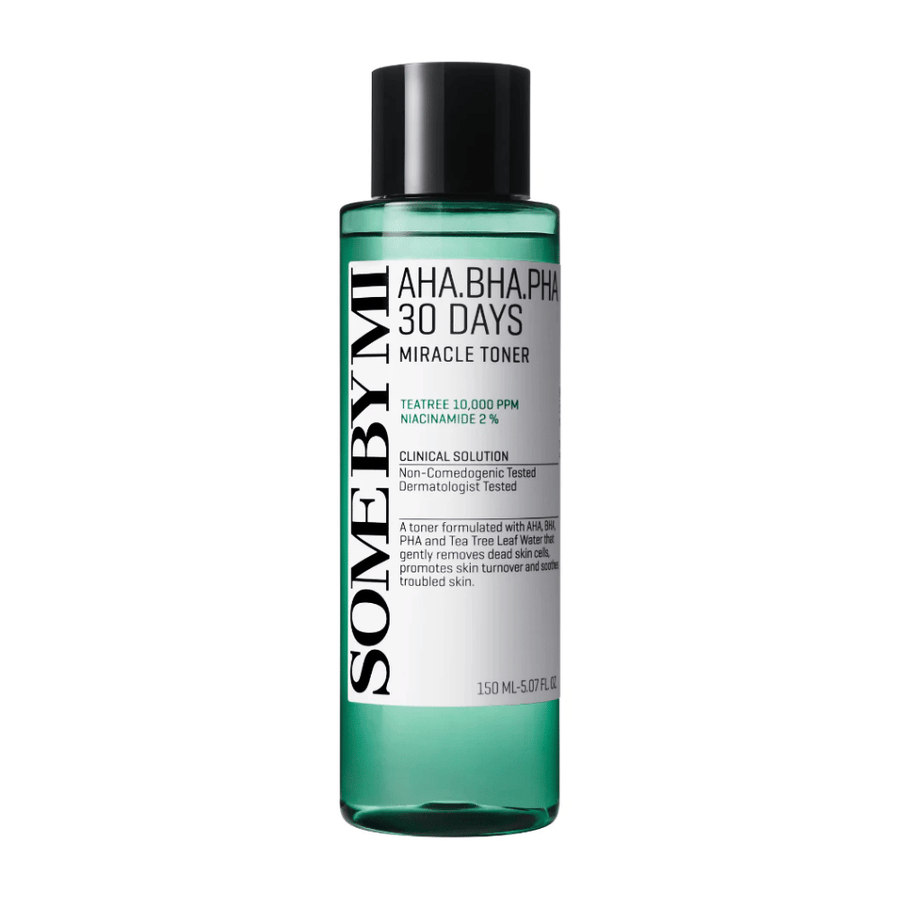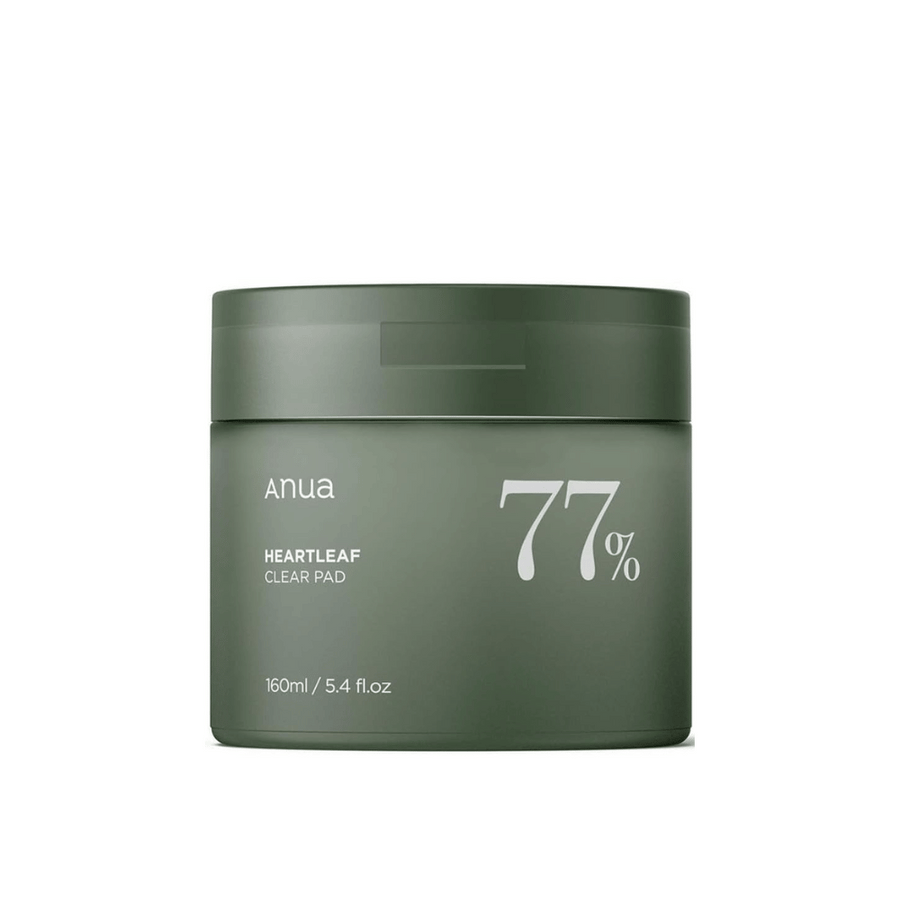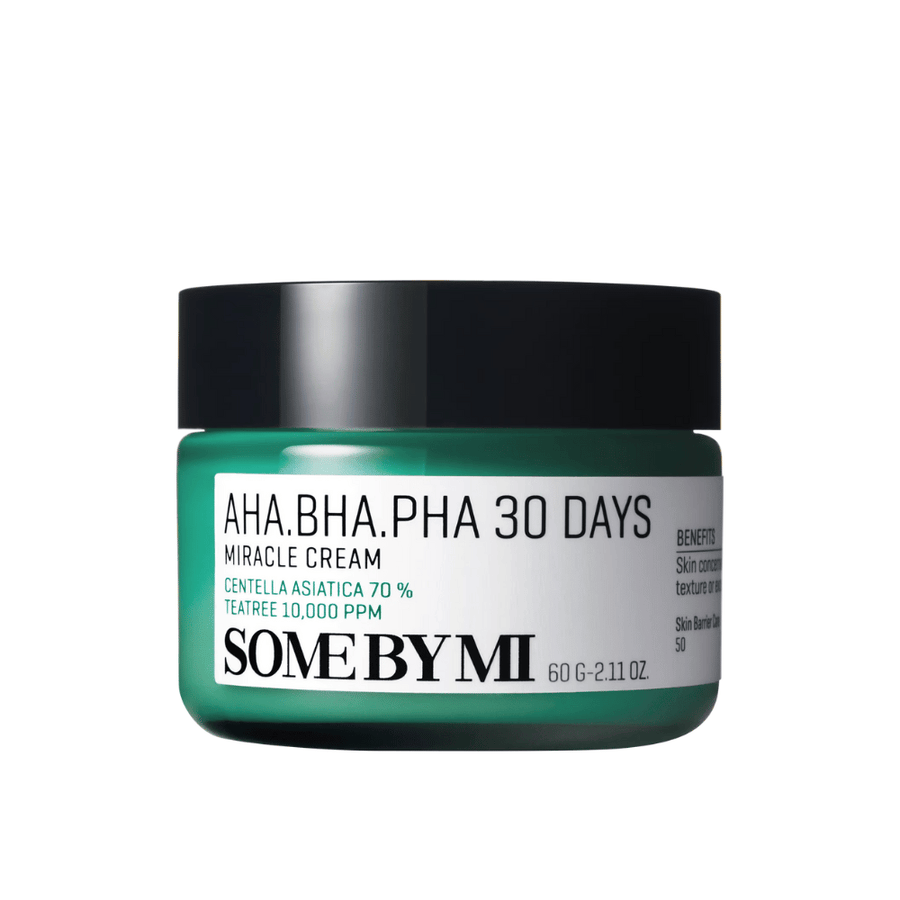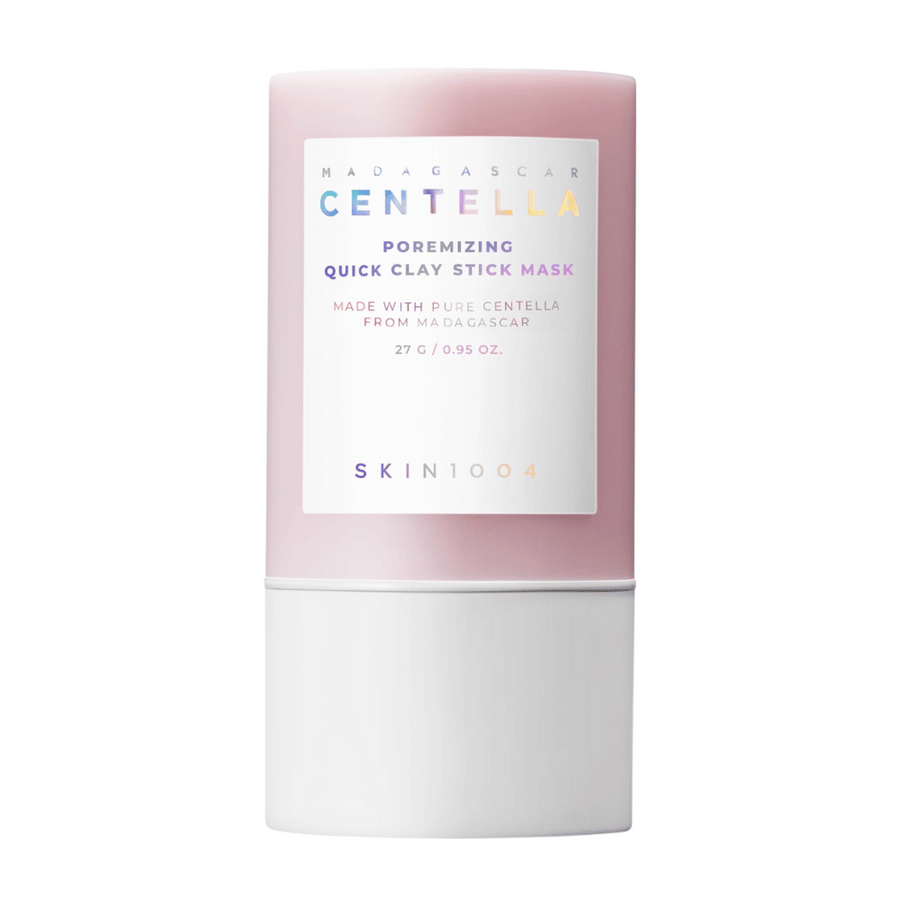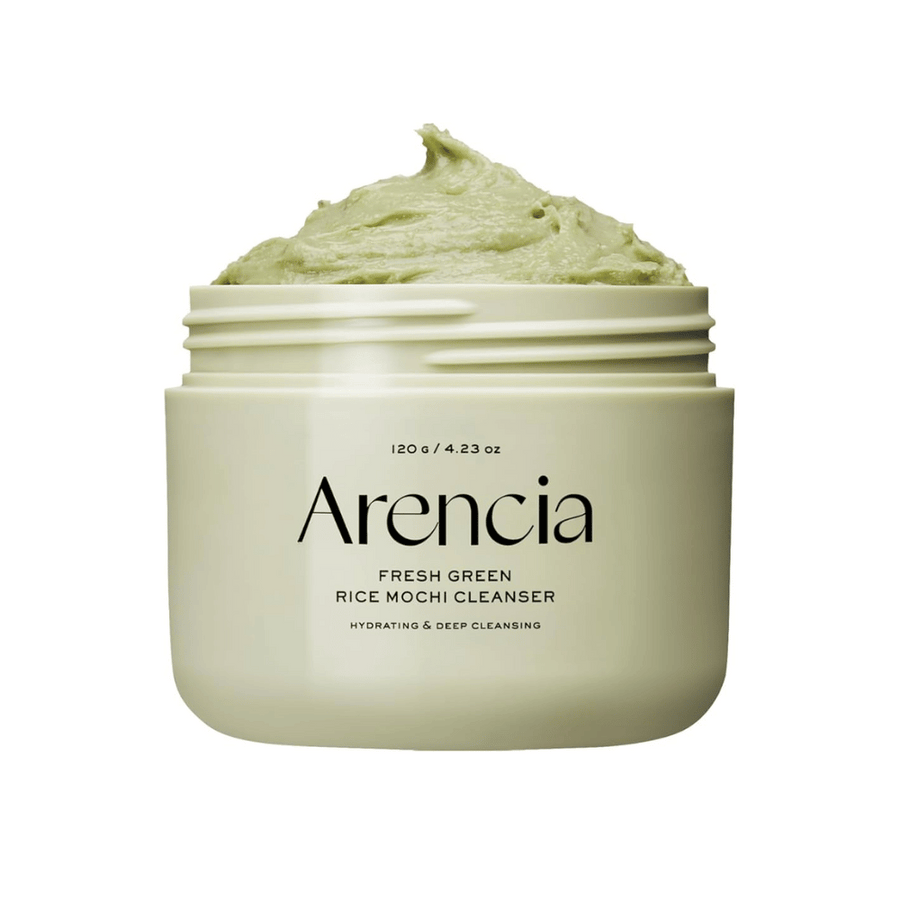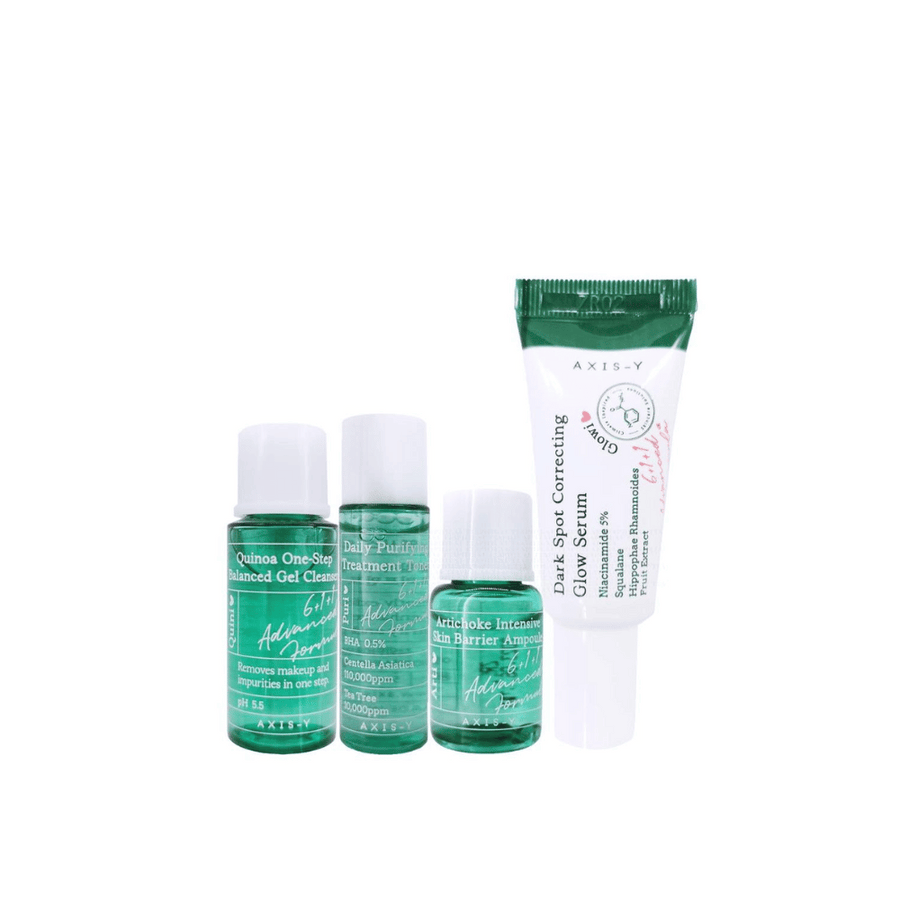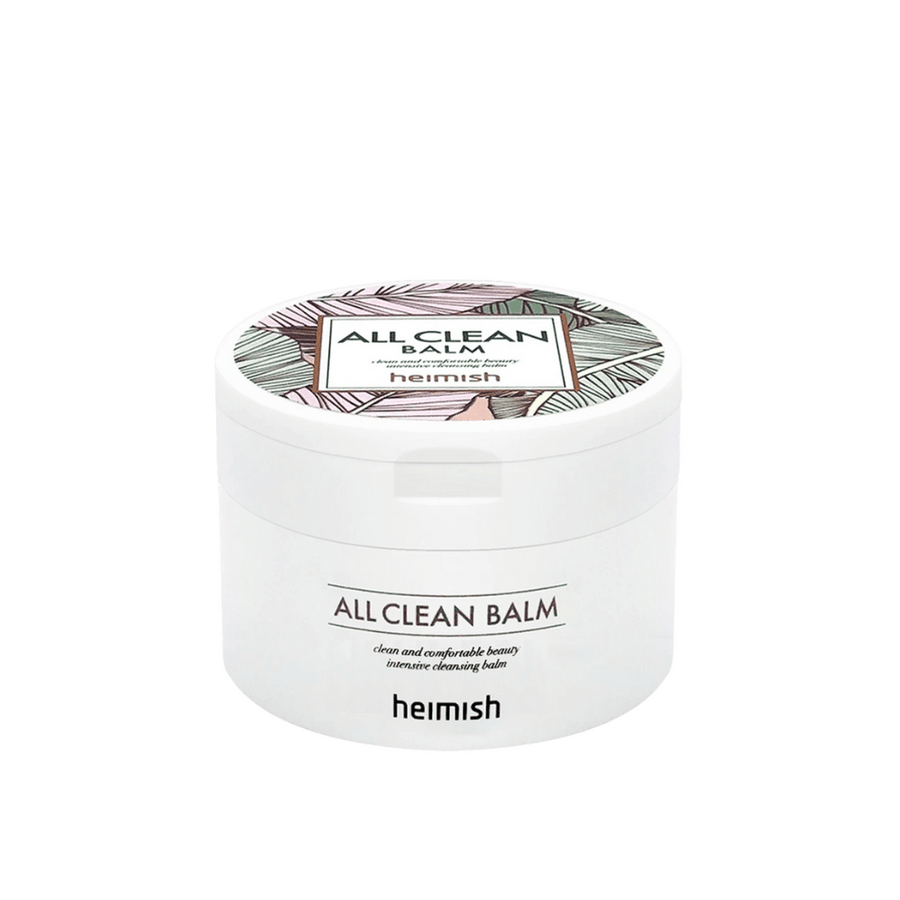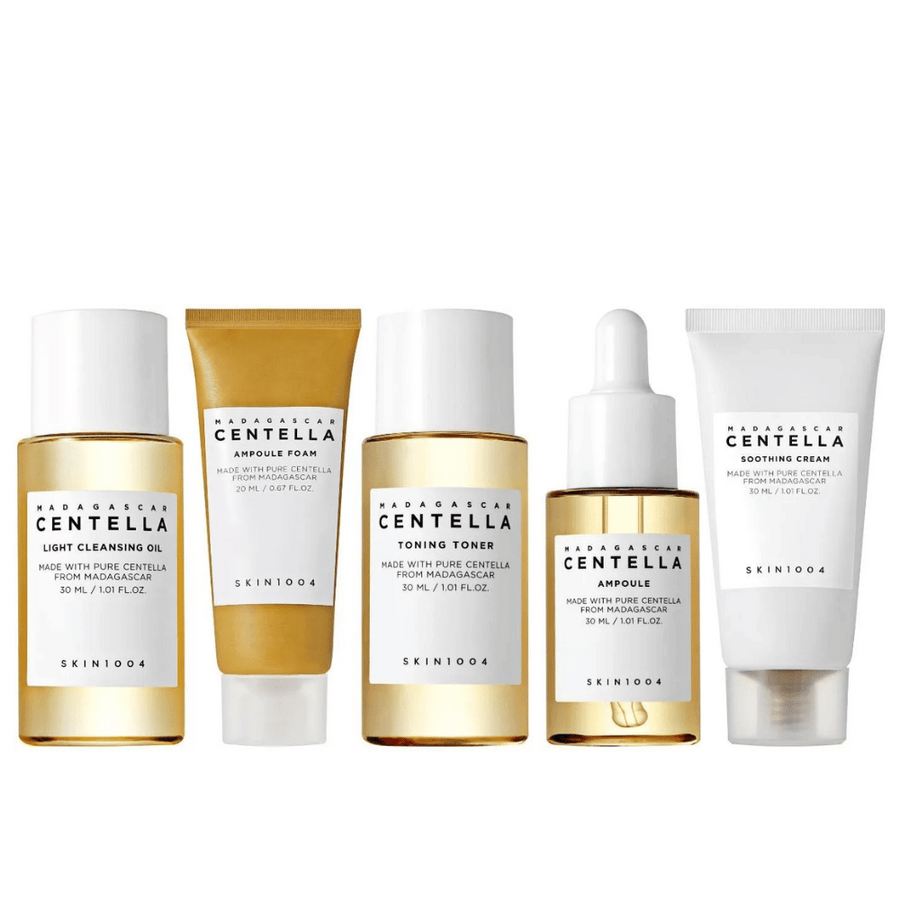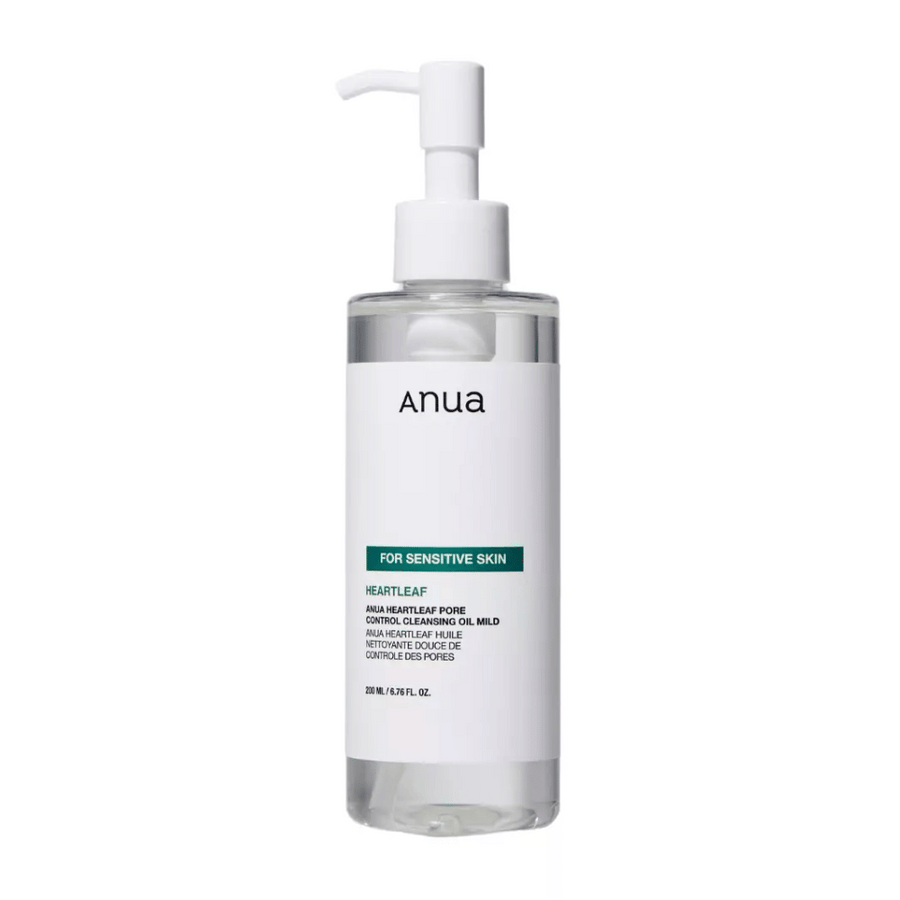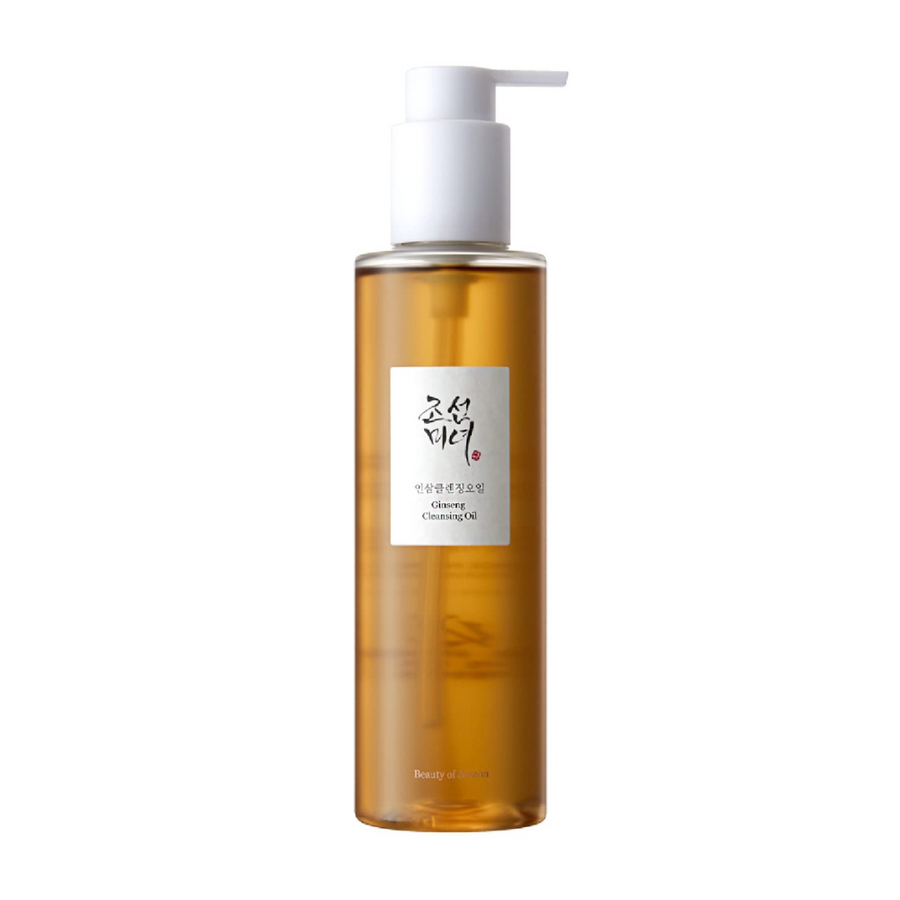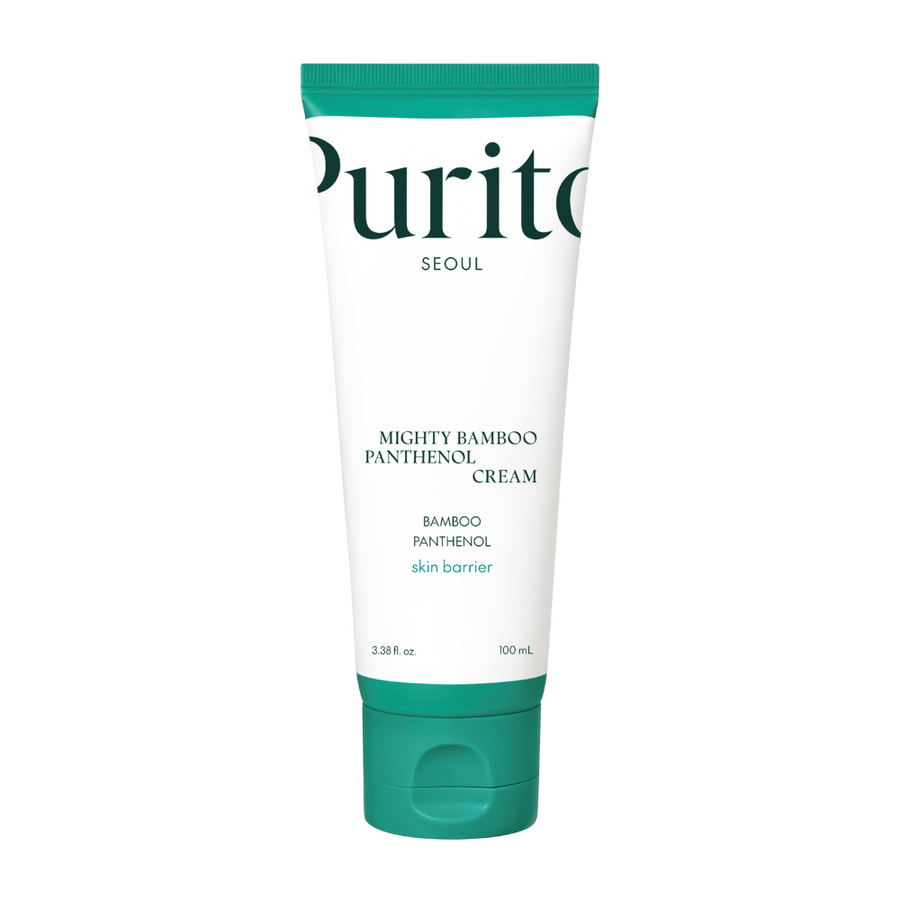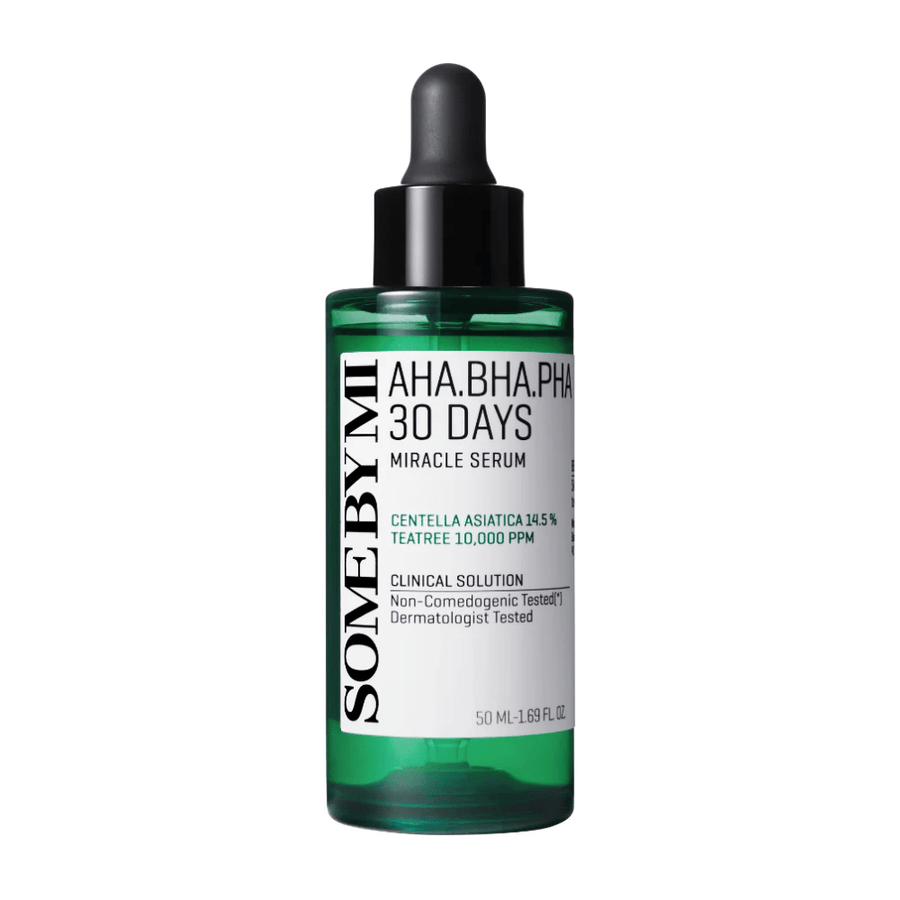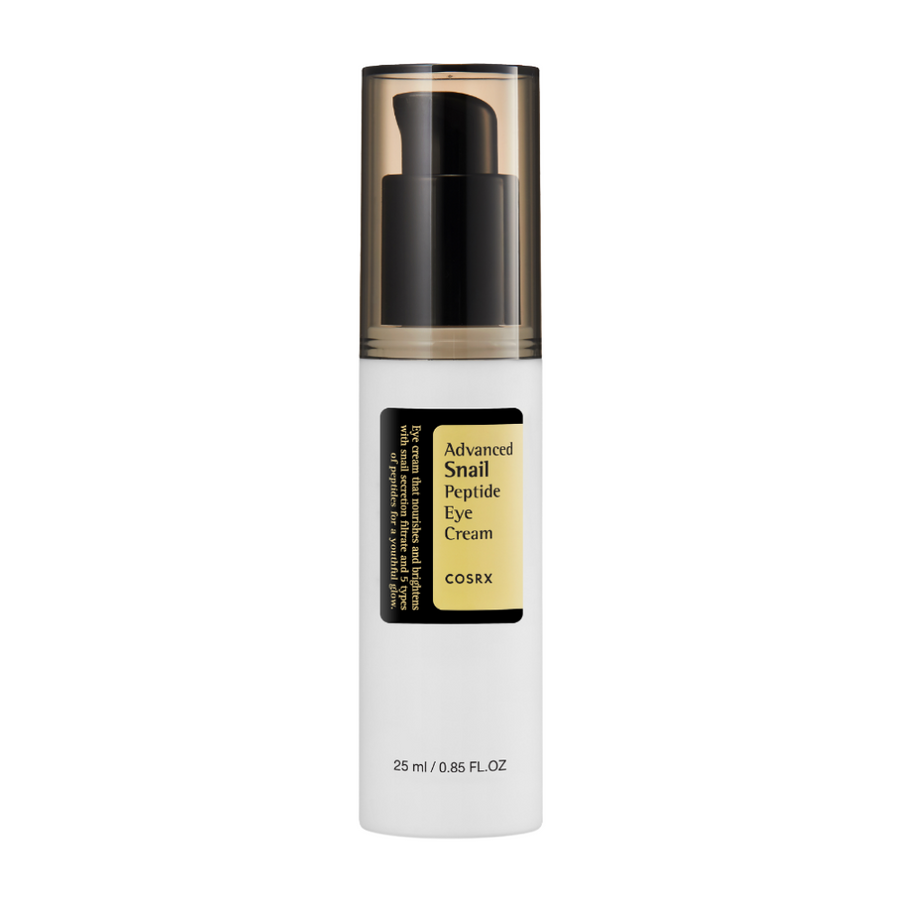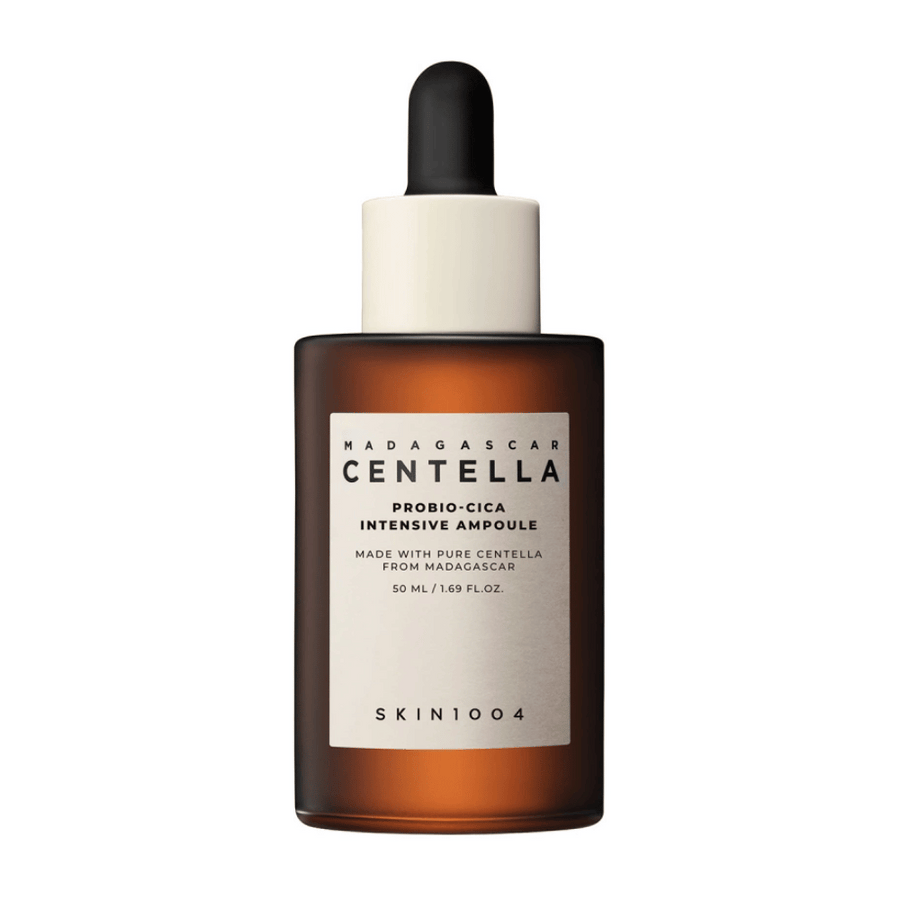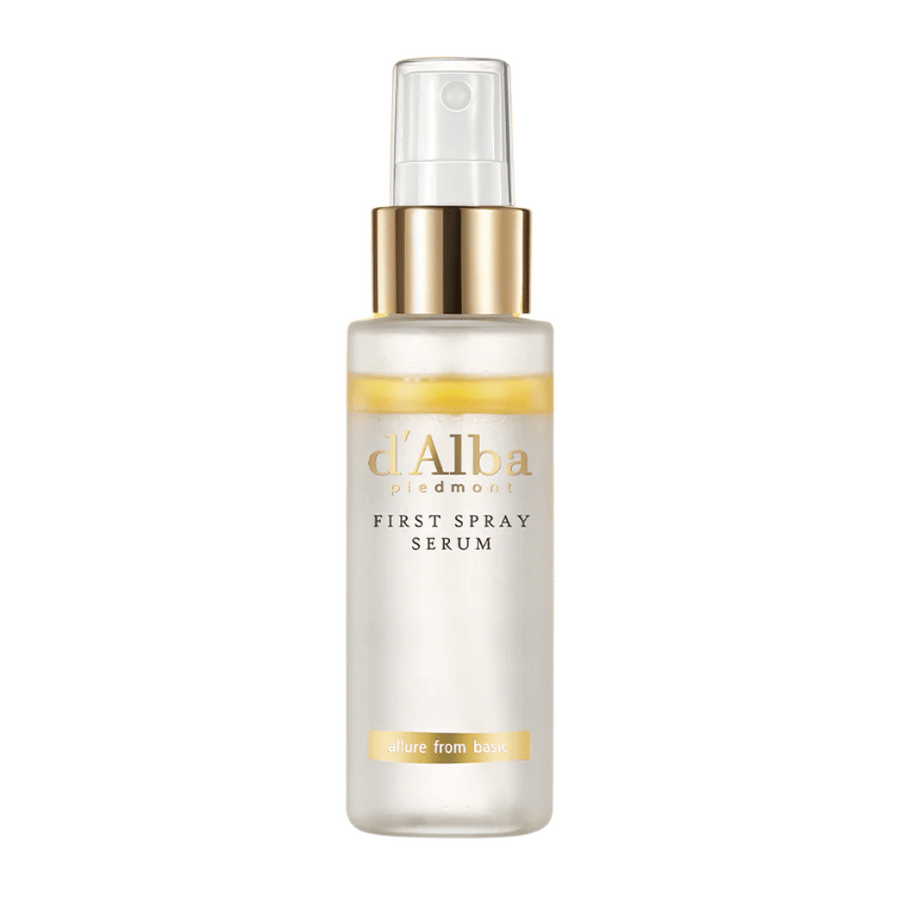
Acne affects both young and adults, but with the right skincare, you can reduce both breakouts and irritation. In Korean skincare, you will find products that are gentle, effective, and tailored for acne-prone skin. Are you looking for serums, creams, or face washes for pimples? Then you have come to the right place.
What is acne?
Acne is a skin condition that often appears as pimples, blackheads, or red inflamed spots, usually on the face, but it can also occur on the back, chest, or neck. It is one of the most common skin problems in the world and affects both teenagers and adults. Do you have acne on your face or find that your skin often breaks out? Then you likely have what is called acne-prone skin, a skin type that more easily develops clogged pores and pimples.
Acne can vary in severity, from mild breakouts to deeper, painful inflammations. It can also leave scars or dark spots if not treated properly in time.
Why does it occur?
Acne occurs when pores are clogged by dead skin cells, excess sebum (oil), and bacteria. It is particularly common during periods when hormones change, such as during puberty, menstruation, or stress.
The most common causes of acne are
- Increased sebum production – the skin produces more oil than it needs.
- Clogged pores – caused by dead skin cells or makeup/products that are not washed off properly.
- Bacteria (Cutibacterium acnes) – which cause inflammation in the skin.
- Hormonal changes – especially androgens that increase sebum production.
- Hereditary – if acne runs in the family, the risk is greater.
- External factors – such as stress, diet, certain medications, or comedogenic skincare products.
Understanding why your acne occurs is key to choosing the right products and method for treatment. With a consistent and gentle skincare routine tailored for acne-prone skin, you can prevent new breakouts and give your skin the best possible conditions to heal.
How to treat acne with Korean skincare
Korean skincare, also known as K-beauty, has become a popular choice for those who want to treat acne in a gentle yet effective way. Unlike traditional skincare, K-beauty focuses on restoring the skin's balance rather than just drying out pimples. By using the right products in the right order, you can help your acne-prone skin become clearer, calmer, and more resilient against future breakouts. Here we go through how you can step by step create a skincare routine to treat and prevent acne.
Double cleansing for acne-prone skin
A thorough cleansing is the foundation of every Korean skincare routine, especially if you have pimples or acne on your face. Double cleansing involves first using an oil-based cleanser to dissolve dirt, makeup, and excess sebum. Then, follow up with a water-based facial wash that effectively cleanses the pores without irritating the skin. This method reduces the risk of clogged pores and contributes to cleaner, clearer skin.
Exfoliation with BHA and other acids
To counteract clogged pores and reduce the risk of pimples, you should use exfoliation regularly. Korean products often contain BHA (salicylic acid) which is particularly effective for oily and acne-prone skin. Salicylic acid penetrates the pores, dissolves sebum, and reduces inflammation. Other mild acids like AHA can also be used to improve skin texture and prevent breakouts.
Toner that soothes and balances
After cleansing and exfoliating, it is important to restore the skin's pH balance with a toner. For acne-prone skin, it is best to choose a toner with soothing and anti-inflammatory ingredients like niacinamide and centella asiatica. These ingredients help reduce redness, strengthen the skin barrier, and reduce the visibility of pores without irritation.
Serum and essence for pimples
Serum and essence are concentrated products targeting specific skin issues. For those with acne, a serum with tea tree oil, azelaic acid, or niacinamide can be particularly effective. These ingredients have antibacterial properties, reduce sebum production, and help even out skin tone. A light essence can also provide extra moisture and nourishment without feeling heavy on the skin.
Facial cream that doesn't clog pores
Many with acne are afraid to moisturize their skin, but it is a crucial step. A lightweight, non-comedogenic facial cream moisturizes without clogging pores or causing more pimples. Korean moisturizers often contain ingredients like hyaluronic acid, green tea, or panthenol, which help the skin retain moisture and prevent irritation.
Sunscreen for acne-prone skin
Sunscreen is a must, not only to protect against UV damage but also to prevent acne scars and hyperpigmentation. Choose a sunscreen specifically designed for acne-prone skin: lightweight in texture, free from alcohol, and with sun filters that do not irritate. Many Korean sunscreens are just that, gentle yet effective.
Special treatments like spot treatments and sheet masks
In addition to the daily routine, you can supplement with targeted treatments. Spot treatments often contain ingredients like benzoyl peroxide, salicylic acid, or sulfur and are used directly on individual pimples. Sheet masks with examples such as snail mucin, tea tree or centella asiatica are perfect as soothing treatments when the skin feels irritated or inflamed.
Common ingredients in Korean skincare for acne
Korean skincare is based on supporting the skin rather than stressing it. Therefore, ingredients that both treat and balance acne-prone skin without causing excessive dryness or irritation are often used. Here are some of the most effective and popular substances in K-beauty-products for acne.
Salicylic Acid (BHA)
Salicylic Acid is an exfoliating acid that is particularly effective for oily or combination skin that often gets pimples. Because it is fat-soluble, it can penetrate deep into the pores and dissolve excess sebum and dead skin cells, two of the most common causes of acne. In Korean skincare, it is often used in milder concentrations than in Western products, making it gentler yet still very effective against clogged pores and inflammations.
Niacinamide
Niacinamide is a versatile ingredient that suits almost all skin types, especially those with acne, redness, or uneven skin tone. It helps regulate sebum production, strengthen the skin's protective barrier, and reduce inflammation. Additionally, it lightens post-inflammatory marks and improves skin texture over time. Niacinamide is commonly found in Korean toners, serums, and creams precisely because it has so many skin-improving properties without causing irritation.
Azelaic Acid
For sensitive skin with acne or uneven skin tone, azelaic acid is an excellent choice. It fights acne bacteria, reduces redness, and acts as a mild exfoliant, making it particularly useful for inflamed acne and post-breakout pigmentation. In Korean skincare, it is often used in combination with moisturizing ingredients to deliver results without drying out the skin.
Tea Tree-oil
Tea tree-oil is a natural antibacterial ingredient that has long been used to spot-treat pimples. It is particularly good for oily skin that tends to have inflamed breakouts. In Korean products, tea tree is often used in balanced formulations along with soothing agents, which reduces the risk of drying out or reactions. The effect is a faster reduction of visible pimples without damaging the surrounding skin.
Centella Asiatica (Cica)
Centella asiatica, often called cica, is a soothing plant-based ingredient that has become a staple in Korean skincare, especially for sensitive or irritated skin. It helps the skin recover after inflammation, strengthens the barrier, and counteracts redness. For those who have acne breakouts that easily become irritated, centella is a perfect complement to more active ingredients like acids or retinoids.
Snail Mucin
Snail Mucin is rich in moisturizing and repairing agents such as glycolic acid, hyaluronic acid, and peptides. It is often used in essences and serums to help the skin heal and regain elasticity. For acne-prone skin, snail secretion is particularly useful because it can reduce irritation, improve skin texture, and smooth scars without clogging pores or feeling heavy.
Retinol
Retinol is a form of vitamin A that effectively accelerates cell renewal and reduces excess sebum production, two key factors in acne. It is often used to treat adult acne and skin that has both pimples and signs of aging. In Korean skincare, retinol formulations are often milder, making them suitable even for more sensitive skin types. Over time, retinol can even out the skin, reduce breakouts, and improve visible scars.
How to choose the right products for pimples and acne
Choosing the right skincare products for acne-prone skin is not just about removing pimples, but about balancing the skin, reducing irritation, and preventing future breakouts. Korean skincare focuses on treating acne gently, with products that care for the skin while being effective against impurities.
If you are looking for a cream for pimples, a face wash that doesn't dry out the skin, or a serum that helps with breakouts, it is important to choose products based on your skin type and how sensitive your skin is to active ingredients.
Here are some examples of how you can think:
Oily skin with pimples
Oily skin often produces too much sebum, which can lead to clogged pores and inflammation. Here, it is important to choose products that balance oil production without drying out the skin.
- A light toner with BHA (salicylic acid) that exfoliates the pores and reduces oiliness.
- A gel-based moisturizer that is non-comedogenic and soothes the skin.
- A water-based cleanser that removes sebum and dirt without irritating.
Dry skin with pimples
Dry skin can also get acne, especially if the skin barrier is weakened. Here, it is extra important to avoid strong products that worsen dryness and instead focus on moisturizing and gentle treatment.
- A moisturizing cream with ingredients like hyaluronic acid and ceramides.
- A mild exfoliation with PHA or low-concentration BHA a couple of times a week.
- A soothing toner or Essence that prepares the skin for moisturizing.
Sensitive skin with acne
Sensitive skin reacts easily to strong ingredients and requires products that minimize inflammation and strengthen the skin barrier. Avoid alcohol, perfumes, and high concentrations of acids.
- A serum with niacinamide to reduce redness and balance sebum production.
- A toner or cream with centella asiatica that soothes and repairs the skin.
- A very mild face wash with a low pH value and without active acids.
By adapting your skincare to your skin type and needs, it becomes easier to find products that really work. Whether you need a face wash for pimples, a serum for acne breakouts, or a cream that moisturizes without clogging pores, Korean skincare is an excellent choice for those with acne-prone skin.
How to prevent and reduce acne scars
Acne scars and dark spots after pimples can be just as frustrating as the acne itself. Understanding how scars form and how you can prevent and treat them is an important part of acne skincare. Korean skincare is particularly good at this: combining effective treatment with ingredients that support the skin's recovery.
This is how acne scars form
When a pimple becomes inflamed or if you squeeze it, the skin can be deeply damaged. This can lead to various types of scars, from depressions in the skin to hyperpigmentation, dark spots that remain long after the pimple has disappeared. The skin's natural healing process can take time, but the right products can accelerate it and improve the results.
This is how to prevent acne scars
The most effective way to prevent acne scars is to treat pimples at an early stage and to avoid squeezing, picking, or scratching the skin. Here are some important steps:
- Use sunscreen every day. UV radiation makes dark spots even more prominent and can slow down the skin's recovery.
- Choose soothing and anti-inflammatory ingredients like centella asiatica and niacinamide to reduce redness and swelling during breakouts.
- Avoid excessive exfoliation which can damage the skin barrier and worsen irritation.
This is how to treat acne scars and hyperpigmentation
If you already have acne scars or dark marks, there are several ingredients and methods in Korean skincare that can help.
- Niacinamide – evens out skin tone and fades dark spots over time.
- Azelaic acid – reduces post-inflammatory hyperpigmentation and calms redness.
- Snail mucin – supports the skin's repair process and improves texture and elasticity.
- Retinol – stimulates cell renewal and can reduce deeper scars over time (use with caution).
- Centella asiatica – strengthens the skin and reduces inflammation, improving healing.
Many Korean products combine these ingredients in gentle yet powerful formulations that are suitable even for sensitive skin. Sheet masks, serums, and creams focused on rebuilding are particularly effective if used consistently.
With patience and a well-thought-out routine, you can both prevent future acne scars and reduce the visibility of old marks. It's not about quick fixes – but about supporting the skin with the right ingredients over time.
Common questions about acne skincare
Here we have gathered the most common questions about acne, skincare routines, and Korean products, along with clear answers to help you take better care of acne-prone skin.
What type of skincare product is best for pimples?
The best is a combination of products that work together. A mild face wash for pimples keeps the pores clean, while a serum with active ingredients like salicylic acid or niacinamide treats pimples deeply. A moisturizer is needed to balance the skin and prevent it from becoming dry or overproducing oil.
How do I know if I have acne-prone skin?
You likely have acne-prone skin if you frequently get pimples, blackheads, or small inflamed bumps, especially in the T-zone (forehead, nose, chin). The skin may also feel oily yet sensitive. Recurring breakouts, even in adulthood, are a clear sign.
Is Korean skincare good for adult acne?
Yes, Korean skincare is particularly good for adult acne because the products often combine soothing, hydrating, and active ingredients. Many adults with acne also have more sensitive skin, and K-beauty products are known to be gentle while still delivering results.
Which ingredients should be avoided with acne?
Avoid products with drying alcohols, heavy oils (like coconut oil), and fragrances that can irritate the skin. Also, certain comedogenic ingredients, which easily clog pores, should be avoided—especially in moisturizers and sunscreens.
Should you moisturize your skin if you have pimples?
Yes, absolutely. Many people think you shouldn't moisturize skin with acne, but that's a myth. Unbalanced, dehydrated skin can actually produce more sebum and lead to more pimples. Use a light, non-comedogenic moisturizer that won't clog pores.
Does salicylic acid work for sensitive skin with acne?
Yes, but it depends on the concentration and formulation. Salicylic acid in low doses (0.5–1%) and in mild products can work well even for sensitive skin, especially if combined with soothing ingredients like centella asiatica or panthenol.
How do you get rid of acne scars and dark spots after pimples?
To reduce acne scars and hyperpigmentation, you should use ingredients like niacinamide, azelaic acid, retinol, or snail secretion. These help to even out skin tone and stimulate skin recovery. Be consistent—results often appear after a few weeks to months.
How long does it take for acne products to show results?
It varies depending on skin type and which products you use, but generally, it takes 4 to 8 weeks before you see noticeable improvements. It's important to give products time and not switch routines too quickly. Some ingredients, like retinol, can even cause a "purge" initially.
What to do if skin becomes dry or irritated from acne products?
If the skin becomes dry or irritated, you should temporarily pause active ingredients and focus on hydration. Use a mild, fragrance-free moisturizer and preferably a soothing toner or Essence with centella asiatica. Once the skin has recovered, you can slowly reintroduce the treatment.
Are there natural ingredients that help with acne?
Yes, several natural substances have been shown to be effective. Examples include tea tree oil (antibacterial), green tea extract (antioxidant and soothing), and honey or propolis (antiseptic and healing properties). In Korean skincare, these are often used in combination with clinically proven ingredients for the best results.
How does teenage acne differ from adult acne in treatment?
Teenage acne is often due to hormonal imbalance during puberty and is usually oilier. Here, stronger exfoliation and sebum regulation can work well. Adult acne is more often linked to stress, hormones, or skin barrier issues, and therefore requires milder products that also hydrate and soothe the skin.



